#also of course famous Franz Kafka
Explore tagged Tumblr posts
Text
𝕬𝖘𝖙𝖗𝖔 𝕺𝖇𝖘𝖊𝖗𝖛𝖆𝖙𝖎𝖔𝖓𝖘 𝖕𝖙 𝟛
✐ ✧Common birth chart placements of famous writers✧ ✐

Hey everyone! I am someone who loves reading and writing so I decided to look into some of my favorite authors birth charts and find common placements amongst them that could indicate being a good writer. Of course there are other placements in a birth chart that can indicate this (I researched a lot of writers charts and of course not all of them have these placements), I just thought it was interesting to see these the common placements amongst prominent writers. If there are any writers you know of that have these placements feel free to let me know!
✐ I’ve noticed a lot of famous male writers have Gemini moons, meanwhile famous female writers have Libra moons.
✐ Gemini Moons: Fyodor Dostoevsky, Franz Kafka, Charles Baudelaire, J.D. Salinger, T.S Eliot
✐ Libra Moons: Sylvia Plath, Maya Angelou, Jane Austen, Emily Dickinson, Agatha Christie, Louise Gluck
✐ Mercury is also another indicator of whether someone is a good writer. Mercury is the planet of communication, thinking patterns, mentality, reasoning/rational, etc. The authors Mercury sign can sometimes reflect the topics they write about. For instance, Oscar Wilde is a Scorpio Mercury and he wrote a lot about death, transformation, mystery and the fall from grace.
✐ Scorpio Mercury: Oscar Wilde, Sylvia Plath, Arthur Miller, Mark Twain
✐ Sagittarius Mercury: Albert Camus, Louisa May Alcott, Fyodor Dostoevsky, Charles Baudelaire, Christina Rossetti, Jane Austen, Emily Dickinson, Louise Gluck
✐ Writers usually tend to have prominent 10th house placements. Many planets in the 10th house can represent authority, being career oriented and success. Most often I’ve seen Saturn be in many of these writers houses, which makes sense because many of these individuals had tough lives and preserved through many challenges in order to gain the success they had. Some died without even knowing how successful they were or the legacy they left on the world. Specifically Franz Kafka, he had Mars, Saturn, Neptune and Chiron in the 10th house. Kafka died thinking he was a failure, his writings didn’t reach their peak popularity until many years after his death.
✐ Other writers with prominent 10th house placements include:
Christina Rossetti (Moon, Saturn), Emily Dickinson (Saturn, North Node), Agatha Christie (Venus), Arthur Miller (Mars, Saturn, Neptune), Mary Shelley (Pluto), Oscar Wilde (Saturn), Ernest Hemingway (Neptune, Pluto), Shakespeare (Mercury, Pluto)
✐ Overall in my findings, I noticed that many writers I researched have multiple Virgo, Libra, Scorpio, Gemini and Sagittarius placements in their charts.
-Side note, he’s not necessarily a writer, although he did write books; Sigmund Freud is a Gemini moon and Scorpio rising. I think that is very interesting lol.
𝓣𝓱𝓪𝓷𝓴 𝔂𝓸𝓾 𝓯𝓸𝓻 𝓻𝓮𝓪𝓭𝓲𝓷𝓰! *:・゚✧
𝓗𝓪𝓹𝓹𝔂 𝓱𝓸𝓵𝓲𝓭𝓪𝔂𝓼 𝓮𝓿𝓮𝓻𝔂𝓸𝓷𝓮! ♡
P.s Let me know if you’re interested in more posts like this. I can do famous musicians, artists, psychologists, etc :) Also, thank you for all the support on my last two posts! 🫶🏻
342 notes
·
View notes
Text
ASAGIRI-SENSEI IS THE BOOK THEORY!!!
Heya, people who are not good with living! I have a theory to share with y'all. I don't know if anyone ever did this theory before, but I haven't seen it, so I did.
⚠️ MANGA SPOILERS WARNING IN ADVANCE ⚠️
Now, why did I think the author himself is the book? It's exactly because he's the author writing a story with characters inspired by authors. It wouldn't be surprising if he becomes a character in bsd.
It's like in MXTX novel SVSSS and the kdrama W. (If you guys don't know what I'm talking about, I'm sorry, but I can't help you.) But in bsd, there's no need for Sensei to transmigrate, because as we all know the characters in bsd are based on authors and he's an author.
Asagiri-sensei as a character is of course going to be special. Atsushi level kind of special. What makes Atsushi special? Being the protagonist and the bookmark. What will make Asagiri-sensei special? Being the creator and the book.
Let's get to the information we currently have:
The book is titled “Stray Dogs"
Chief Taneda thinks that the book is created by an ability user
Fyodor said that the book is their origin
Dazai said that the book is an empty novel
Ranpo thinks that the book is not a simple ability
Sensei's pen name is “Kafka Asagiri"





Fyodor said that the book is their origin and Atsushi is its bookmark. Meaning, the book is something divine, like a God, that created them. The book is their beginning. We, the readers (watchers), knows that they are characters in Bungou Stray Dogs and we're following the progress of the story through the protagonist, Atsushi. Atsushi is acting as our bookmark.
It seems to me that Fyodor and perhaps even Dazai, the two otherworldly geniuses who knows about the book, has some awareness of that. But that's beside the point.
With this bit of info, we can speculate that the book is the bsd itself and that the ability user, who Chief Taneda thinks created it, might be Asagiri-sensei because he's the creator of the bsd.
A little fun fact: the book's title is “Stray Dogs" and Oda was the one who first said it (dark era) and Asagiri-sensei's pfp is Oda.
So why did I come from “Asagiri-sensei being the creator of the book” to “Asagiri-sensei is the book"?
It's because of Ranpo and Asagiri-sensei's pen name.
Ranpo, unlike Chief Taneda, doesn't believe that the book was created by an ability user. It's another otherworldly phenomenon, like a singularity and tripolar singularity, that far exceeds a normal ability.
And then there's the pen name: Kafka Asagiri. There's nothing unusual with “Asagiri", it's a normal japanese name, but “Kafka” is not. I think it's a reference to the author Franz Kafka.
In Franz Kafka's most famous novel, The Metamorphosis, the protagonist transformed into an insect. How does that being Asagiri-sensei's pen name relate to the book being divine?
It's simple. Asagiri-sensei is like Gozen, (I find it cute when Fyodor called him that), a higher being that's not within the three dimension, he transformed and becomes the book itself. He's the origin of their world.
Dazai also said that the book is an empty novel, if the book is bsd shouldn't the story be written in it? The characters, as it is, seems to be freely writing their own story and can change the world using the book. The book is full of possibilities, it's something that transcends space and time.
I haven't thought about the specifics of how and why Asagiri-sensei becomes the book yet so we'll leave it at that. Is it a plausible theory or do I need to go to therapy?
11 notes
·
View notes
Text
Speculating What the 16-Registered Special Grade Curses Are
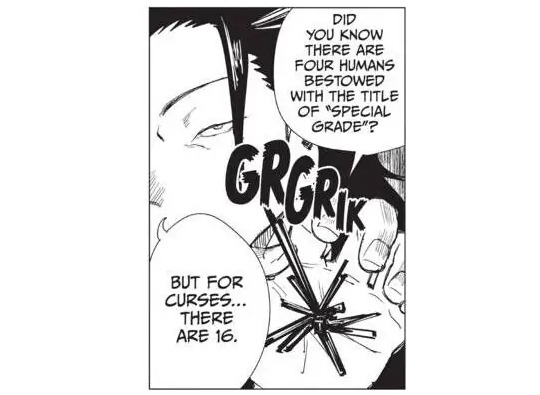
Geto mentions that there are 16-Registered Special Grade Curses, but we only ever got to see four! In all of Jujutsu Kaisen!! I want to know what they are at least, so here's a few speculations.
First, the ones we know.
Tamamo-no-Mae Incarnate, an Imaginary Vengeful Spirit based off of Tamamo-no-Mae.
Ah, a quick explanation of Imaginary Vengeful Sprits: They're Curses built off the cumulative fear humans share over a specific figure, like a famous yokai or ghost story. Kuchisake-onna is one... But so is Sukuna. Ryomen Sukuna is the "Imaginary Demon" with two faces and four arms, but he was actually a human who existed. So, I guess this means he was changed due to people's fears of him? This kind of makes sense when you consider that the Three Great Families are also decedents of the Three Great Vengeful Spirits. I mean... those are Curses too. Actually, we can probably count all of them as among the 16-Registered Special Grades now that I think about it.
Wow, what a fruitful tangent. Let's get back to it, shall we?
1. The legend of Tamamo-no-Mae is that she was a fox spirit under the guise of a courtesan under Emperor Konoe (who reigned from 1142-1155, Heian period). The same beautiful fox spirit who led to numerous rulers getting seduced into being terrible rulers throughout history. Because of course she was.
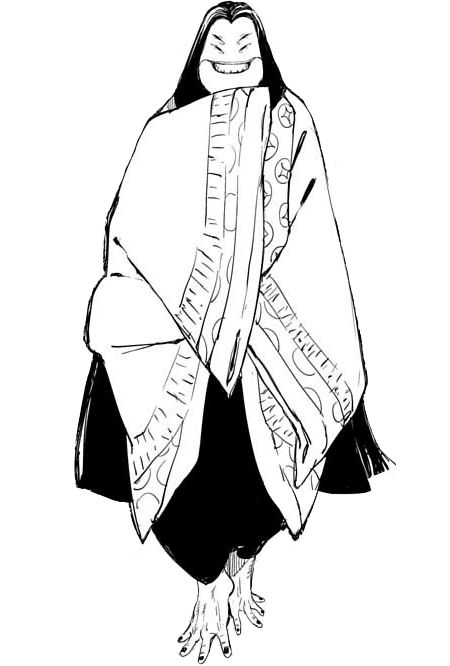
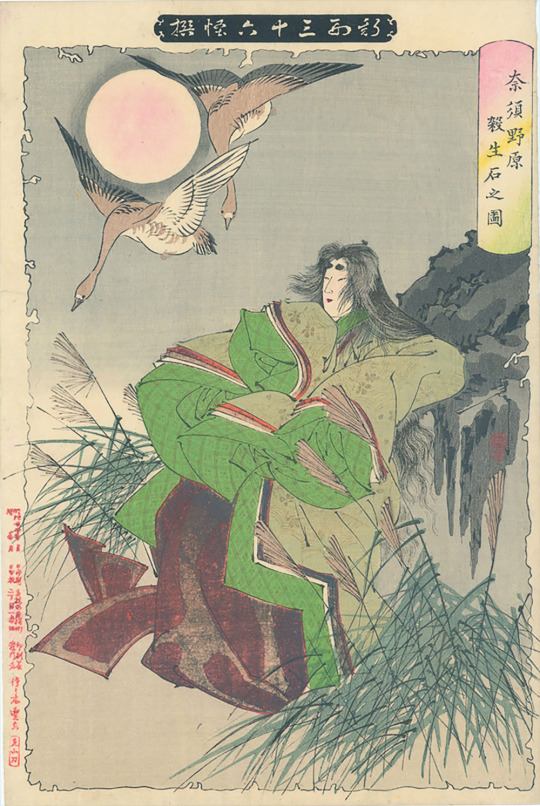
2. The Smallpox hag is a Disease Curse. Kenjaku lied about it being a deity, (src: Vol. 20 extra) but I assume it's still a Special Grade since it can use Domain Expansion. Disease Curses are born from the fear of a disease such as the plague. The way Akutami depicts something on it's stomach like it's distended is notable. I did find Sopona, the god of smallpox in the Yoruba religion, which might've been used as a reference point.
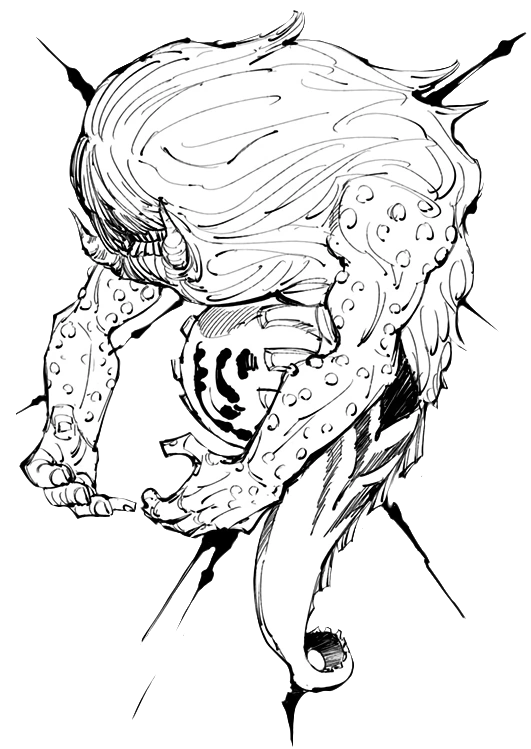
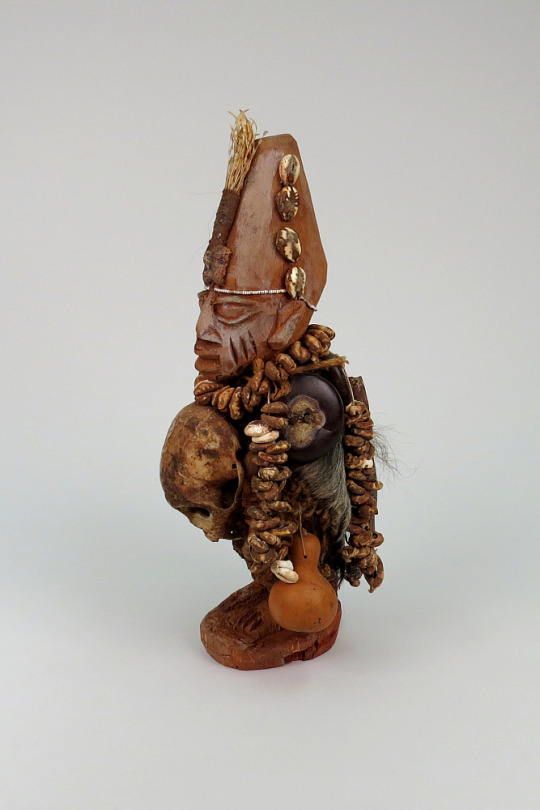
3. Kurourushi was a Registered Special Grade from Kenjaku's (I suppose Geto's?) collection of Curse Spirits he released for the Culling Game. A cockroach curse... At this point, I think it's safe to call it a Devil from Chainsaw Man.
I actually suffered through researching cockroaches a little for this list to see if anything caught my eye. It wasn't worth it. lol. There is a neat article about cockroaches in pop culture you can read to your heart's content if you like. Obviously, swarms of cockroaches attacking people are a common enough trope. Honestly, I'm also reminded of the beetles from The Mummy, only more disgusting.
It's definitely totally irrelevant, but Metamorphosis by Franz Kafka, which is listed on that page, is about a man who turned into a giant beetle-like creature (usually thought to be a roach). I only bring it up because Mahito briefly discusses it in the first light novel.
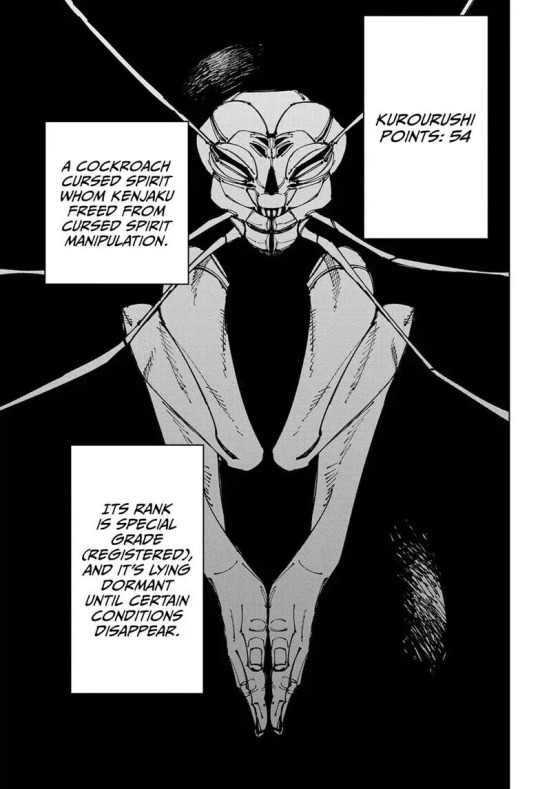
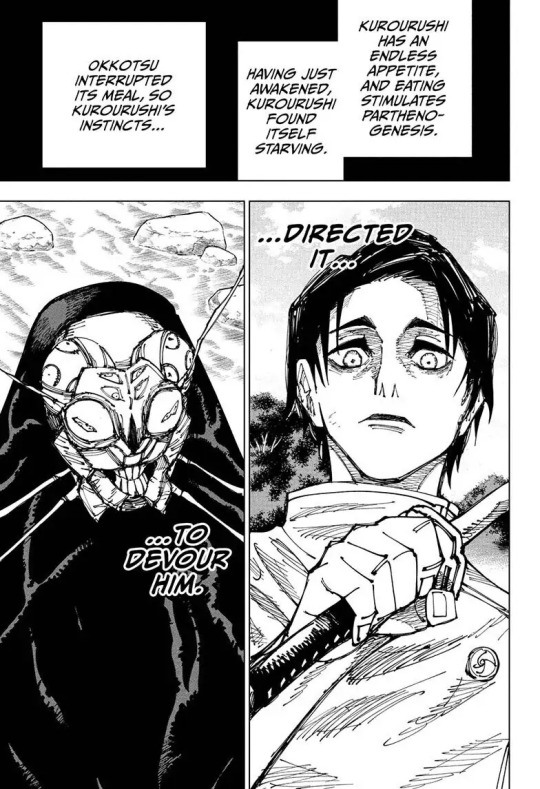
4. An Asian God Curse not from Japan. Maybe Genesha, but more probably Kangetian, the Japanese equivalent. Kangetian has both positive and negative reception in Japan and has some Curse-like descriptions. Whereas Genesha seems like a benevolent figure... But Genesha is the one consistently depicted as pink with four arms... Y'know what, Curses are an amalgamation of human negativity anyway, I shouldn't stress about it.
From the Kangetian wiki article:
the Buddhist Vinayaka was (at least at first) negatively portrayed as the creator of obstacles and the leader of a class of malignant demons who obstructed Buddhist practice called vinayakas [...]
And there's this:
On the other hand, he is considered to be still bound by base passions and desires (kleshas) and thus is sometimes also regarded as a rather volatile, demanding god who is quick to punish those who have offended him.
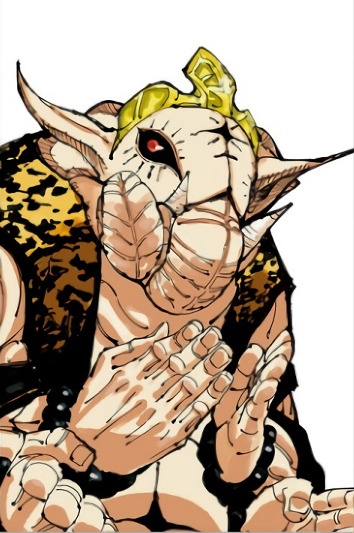
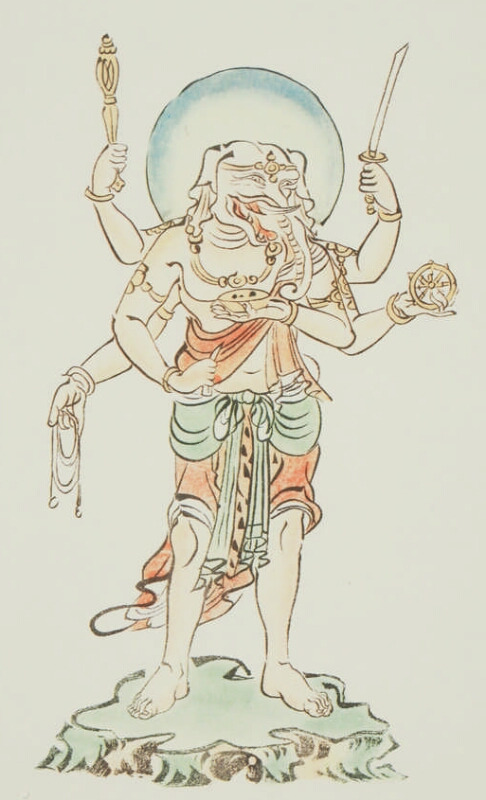
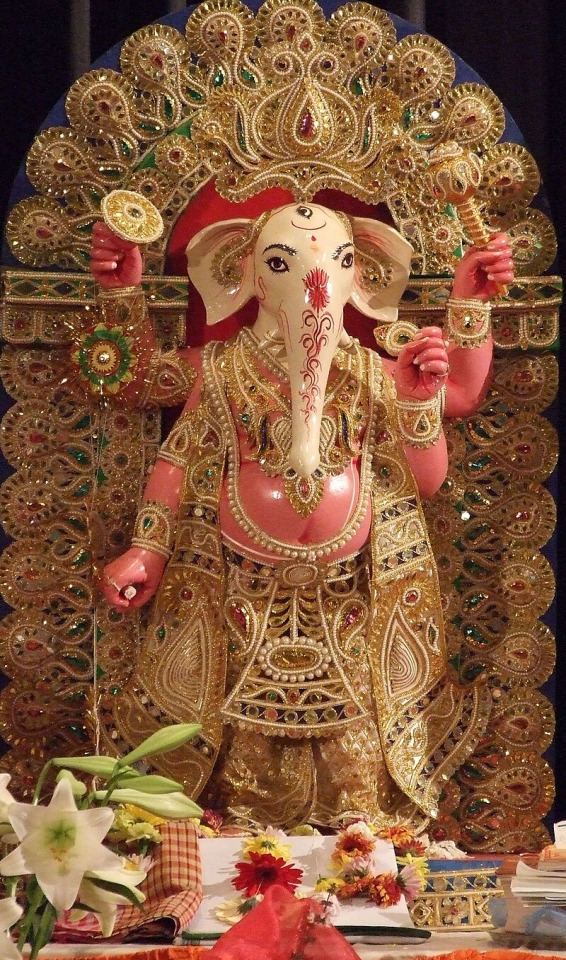
The ones that are most likely part of the registered Curses.
The Three Great Vengeful Spirits, ancestors of the Three Great Families. There's no way they're actually around anymore, but this is just about being a "registered" Special Grade, so they had to have counted, right?
I'll try to be brief here, because somehow, this post has already ended up three times longer than I'd intended. (*edit: It did not end up brief.)
5. Sugawara no Michizane came from a middle-class family of scholars. He was considered a child prodigy, a genius, and held the second highest rank in the imperial court, right under the emperor. As you can imagine, he was the target of jealousy from other aristocrats. He was falsely accused of trying to abolish the emperor and died two years later in exile. (His greatest rivals were the Fujiwara btw, which is ironic considering what Uro thought Yuta was.)
After he died, everyone thought his enemies would continue to dominate the court. AND YET, a whole lot of them started to up and die from "accidents," illnesses, etc. ALSO, lightning repeatedly struck the imperial court and even more of his enemies died. The imperial city experienced weeks of rainstorms and floods. Anyway, everyone decided they needed to pacify what was clearly Michizane's vengeful spirit, built him a temple, and deified him as Tenjin. (Like "Raijin," god of thunder. Lol.)

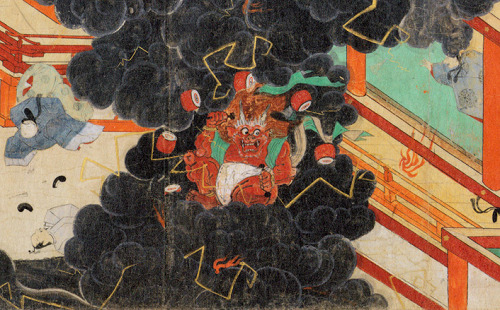
6. Taira no Masakado was a samurai who's notable for leading the first recorded rebellion against the imperial court in Kyoto. Masakado worked for a powerful noble in the capital but returned to the east after his father's death. He ended up as a kind of "hero of the people" and declared himself the "new emperor" with half of Japan's land. Which, uh, obviously wouldn't fly with the imperial court. He died two months later in battle and his head was sent to Kyoto and displayed for the people to see.
But there were some strange rumors about that head... Its eyes stayed opened for months... You could hear it grinding its teeth at night... Most bizarrely, legend says the head flew back east to look for its body. Specifically, to the head mound in what would become one of the most expensive pieces of land in Tokyo's financial district.
Anyone who tries taking down the mound is faced with bad luck (including death), so it's well maintained to this day.
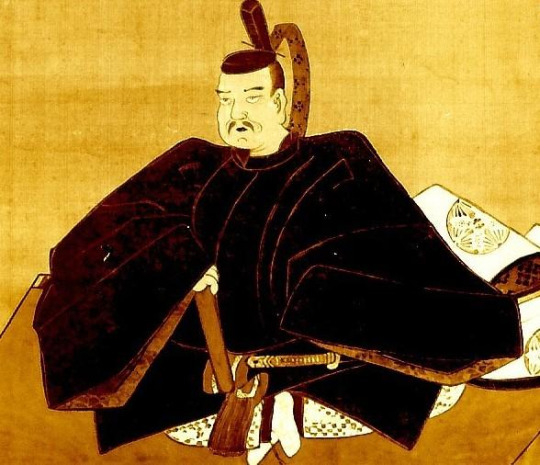
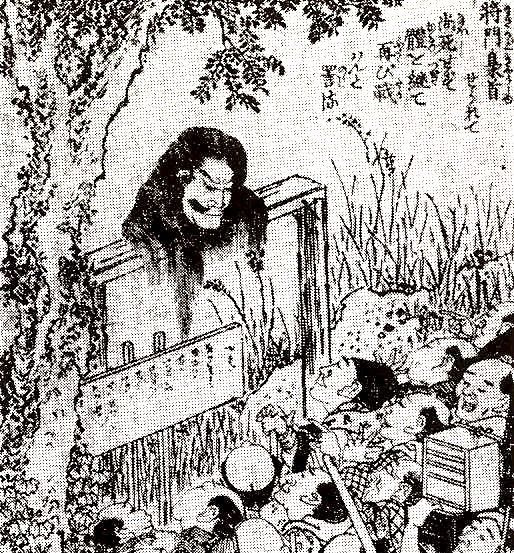
7. Emperor Sutoku was a puppet emperor from the age of 3 to 22; under the control of his father. After he was forced to abdicate, failed a rebellion, and forced into exile, he became a monk. Devoting himself to Buddhism, he copied scriptures and asked the court to have them sent to a temple in Kyoto, but the court sent them back claiming they were cursed. (Yeah, I know.)
Sutoku swore to become a yokai to avenge his grudge. After that, he never cut his hair or nails again. By the time he died, he looked like a demon.
Everything from the subsequent fall in fortune of the Imperial court, the rise of the samurai powers, droughts and internal unrests were blamed on his haunting.

(I found this neat series of articles about each of the Three Vengeful Spirits after typing this out, which go into them a little more: Taira no Masakado, Emperor Sutoko, Sugawara no Michizane)
8. Ryomen Sukuna needs no introduction. I will add this quote, though.
Q: It's mentioned that Sukuna was a human who actually existed, but was he a curse user when he was alive? Akutami: You could say he was a curse user, but I think he was closer to a natural disaster.

9. Rika-chan was definitely a Special Grade. And once she was discovered, she had to have been registered as the "Queen of Curses." The question is whether Geto counted her among the 16?
Tangentially, these are my own thoughts, but human Rika... Well, reading her character profile from Volume 0 and seeing her looks-- her long dark hair, the mole on her face-- reminds me of another certain malevolent curse-like girl: The eponymous Tomie from Tomie by Junji Ito. And considering we get an Uzumaki reference later in Volume 0, I don't think it's entirely a coincidence.

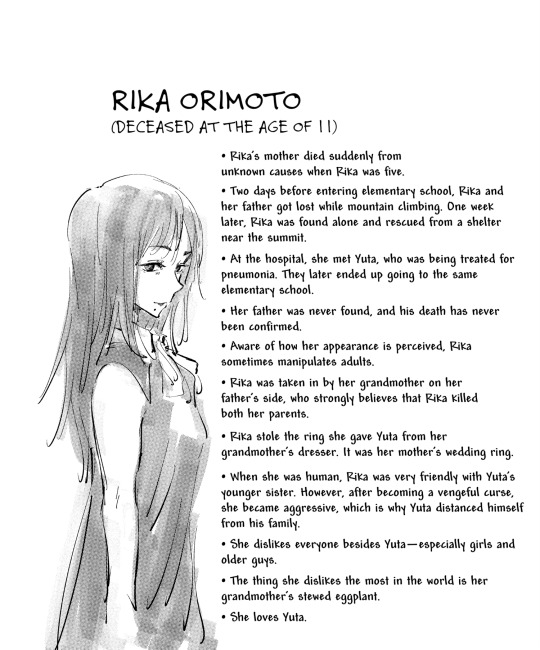

That's 9 out of the 16, so actually, we knew more of the Registered Special Curses then I thought. (Speculative though it may be?)
Finally, onto the reason I made this post in the first place.
☆ Because I was one of those children that ate up supernatural mysteries and fairytales, I really liked the legend of Yuki-onna. Something about the imagery... A beautiful woman in the mountain snow leading men to their deaths... Is super poetic. Lol.
☆ Sadako from Ring. She's so ubiquitous by this point, how could there not be an Imaginary Cursed Spirit based off her? The first Ring movie came out in 2001, and before that it was a novel series. Quick summary, this should be familiar to you: Sadako is a ghost who made a cursed video tape. Whoever watches the tape will die in seven days.
Notably, Sadako is a mix of two ghosts, Oiwa and Okiku. There's also Kayako from The Grudge. I can see all of them mixing together into a Special Grade.
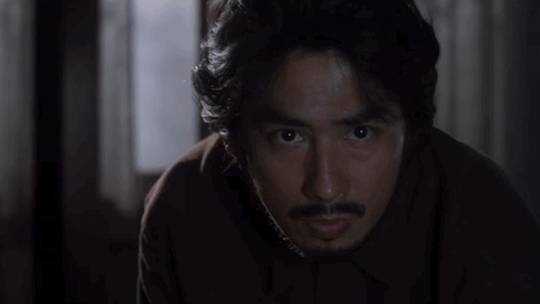
☆ Since Mahito mentioned the nine-tailed fox (kyuubi), it would feel remiss not to mention it. Different from Tamamo-no-Mae, this one takes the more animalistic form.
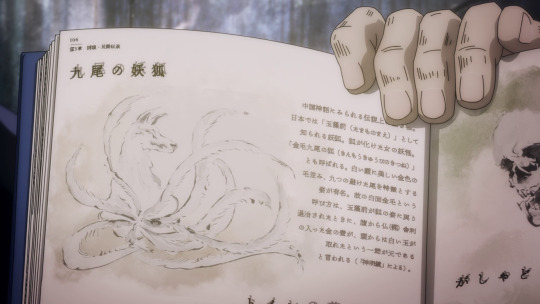
☆ Genuinely terrifying would be an atomic bomb Curse. It would look balding and gaunt... It would have radiation related powers. It would be awful.
☆ I know the Darkness Devil is a thing in Chainsaw, but considering "the dark" is one of the most fundamental fears of the human race, I'm going to say that makes sense.
☆ A "white devil"/gaijin Edo period era Curse that stems from Japan's xenophobia, especially at the time. I imagine a lot of like, Christian imagery with it. Think Eva. Lol.
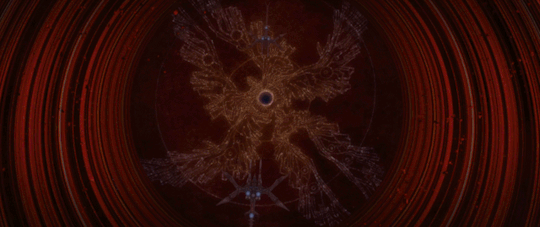
A few more...
Not even Kuchisake-onna was a Special Grade... It could do Simple Domain though, so it was probably a Grade 1 Curse at least. Here are a few more ideas that could be, at least, Grade 1 in my book.
★ Kisaragi Station is just my love for that urban legend. Hey, if oceans, forests, and volcanoes can become Curses, then so can imaginary train stations! Trains are also the way so much of travel is done in Japan, I legit think this could be a possible Curse. Kisaragi Station originated from a 2ch post in 2004. A woman asks 2ch for advice when the train she usually takes home doesn't stop... until it reaches "Kisaragi Station," anyway. There was a Mob Psycho OVA with a similar idea, where Reigan was basically trapped in a Domain, now that I think of it. Hahaha.
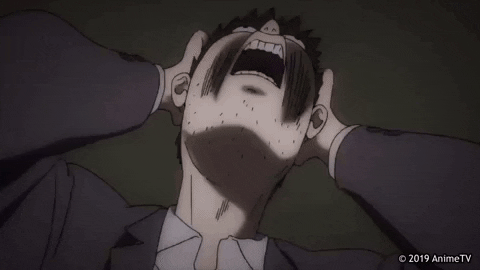
★ Hanako-san of the Toilet was also mentioned by Mahito. And frankly, not just in Japan, but around the world, the bathroom is a place of hauntings. Here's a really great video that talks about the fear of bathrooms in media that I recommend. And here's a post I wrote a few years ago about an episode of Shin-chan that made me apprehensive of dark bathrooms as a child. Lol.
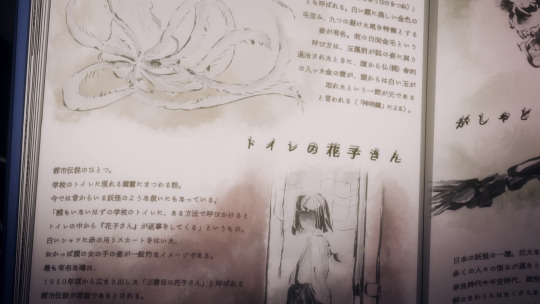
Ideas for Curses from other countries
Like Kangetian, here are a few foreign figures too. I tried to keep in mind they should be of things people felt genuine fear or hatred towards. Obviously, each culture has a great many folklore and urban legends, so I'm only listing famous ones I personally knew of.
Jack the Ripper was a real-life English serial killer, but he's risen up into something of a mythical status. There are so many fictitious takes on him, in the world of Jujutsu Kaisen I'd be shocked if he hadn't become an Imaginary Cursed Spirit.
Baba Yaga, a Slavic cannibalistic witchy figure whose preference was children. Though this story is German, think the witch from "Hansel and Gretel." There were a lot of time periods of famine in that region of the world, so I can see starvation, the desperation to eat something, leading to that widespread grotesque fear.
Bloody Mary, I think of her as American, but there's rumors that she's based off of a European woman. I'm reading the wikipedia article right now, and boy is the ritual a lot more complicated and meaningful than it actually is. Basically, you just say "Bloody Mary, Bloody Mary, Bloody Mary"; repeating her name three times, in front of a bathroom mirror and she appears. Uh, I don't think there was a reason for it. It was just spooky thing to do. Speaking of reasons to be scared of dark bathrooms... I remember trying to call out to Bloody Mary as a child at a friend's house. I cannot for the life of me remember if I chickened out or not. Probably.
youtube
La Llorona, "the Weeping Woman," of Mexican origin. She haunts areas around bodies of water looking for her children, who she drowned in life during a jealous rage when she discovered her husband cheating on her... Another female phantasm. I suppose, women are so often wronged in life, it's easy to imagine them haunting us after death. As a Curse, I can see her springing up mostly due to the guilty feelings of men who have cheated.
Why did I do this to myself? As soon as I started writing up Tamamo-no-Mae I went on a tangent (as you can see) and I spiraled. OTL Whatever, I like myths and lore and it was fun even if this ended up... so much longer than I'd expected.
#jujutsu kaisen#my jjk#jjkdaily#jjk meta#jjk manga#jjk spoilers#let's try to be more bloggy shall we#long post#jfc
39 notes
·
View notes
Text
Week 4: IFSA Action-Packed Week!
Ahoj!
Welcome back to my life in Praha! This week has been one of the busiest yet, featuring exciting developments in all my classes, an IFSA program-sponsored trip to Brno, and a visit from a friend from Michigan. Stay tuned for all the adventures!
Academics Debrief
As the semester progresses, my workload is definitely picking up. I had my first meeting for the Gnosis project, our capstone collaboration with a startup to develop an AI agent for prediction markets. At first, I felt a little out of my depth due to my limited familiarity with the financial technology space. However, after asking my prepared questions and reviewing some code, the pieces are starting to come together!
My team of four decided it would be more manageable to have our agent specialize in a specific market, such as politics, tech, business, etc. Our research so far has been super interesting; markets like politics and crypto are fast-paced and speculative, whereas tech and business tend to be more structured and data-driven. It’s a challenging yet exciting opportunity that ties into my AI class, making it highly relevant to my studies. I’m looking forward to seeing where this project goes, and who knows, maybe I’ll even use it myself if proven successful!
In terms of my classes, all six are in full swing. My Software Engineering class, as I mentioned in my previous post, is fast-paced and hands-on. Every Monday and Wednesday, I know I’ll be learning a lot, and I really enjoy both the coursework and my professor’s teaching style. Our group project, travelog, feels like working on a personal passion project but for a class, which makes it even more exciting.
Meanwhile, Essential Czech has me preparing for a quiz and choosing a subject for my upcoming influential personality presentation. Having only ever taken Spanish classes (which I’m fluent in), it’s been really fun formally learning a new language. As for the presentation, we have to select a famous Czech person to create a presentation about. Although I had learned about Franz Kafka from the museum and statue in Prague, and from reading his books in the past, I’m challenging myself to select someone new. The class has already been helpful when navigating daily interactions, and I’m slowly gaining confidence in using Czech in public. Wish me luck on the quiz!
My Communication and Leadership courses have been extremely interactive, with discussions and presentations every week. In Comm, we’re reading The Culture Map, a book about how cultural awareness and adaptation can impact success in international business. Our latest assignment is an annotated bibliography, which also ties into our Leadership class, since we selected academic research papers that could help us with the capstone project.
Finally, in Tech Ethics we're taking a deep dive into deontology versus utilitarianism. I wasn’t expecting such a philosophical and thought-provoking class, and having never taken a philosophy class it’s a completely new yet intriguing experience for me. We often consider philosopher's takes on theoretical societies and moral dilemmas, which sparks some interesting late-night conversations with my roommates.
Overall, I’ve been really enjoying the IFSA academic structure here in Prague. Although I originally dreaded the idea of being in class for so many hours of the week (except Fridays), the Villa, where we take classes, is such a cozy space. There’s a backroom lounge with beanbag chairs, tea, and coffee, and you’ll always see someone sipping a freshly brewed mug in class. The professors and small class sizes create a close-knit, homey atmosphere that feels comfortable but also pushes you to actually learn. If we have longer breaks in-between classes, I’ll usually go to Coffee Corner to grab a bite (a popular café near the Villa), hit the gym, or even squeeze in some midday sightseeing in Prague 1.
Weekend with IFSA in Brno!
This weekend was the much-anticipated IFSA overnight trip! Brno is the second largest city in the Czech Republic after Prague, and to me, it felt like a smaller, quieter, and less touristy version of the capital. Heading to the train station at 7:30 AM on Friday, I had no expectations, but the trip ended up being the highlight of my week!
We had an extremely comfortable two-hour private bus ride, followed by check-in at a surprisingly nice hotel that everyone was excited about. They assigned rooms by roommates, and I shared a room with two of my roommates that had everything we needed.
After settling in, we split into three pre-organized groups for our scheduled activities, kicking things off with a group lunch at a Czech restaurant reserved for us by IFSA. The rest of the day consisted of exploring Brno’s history with stops at a bunker, a cathedral, and a castle that was also a prison. That evening, we enjoyed burgers with friends before heading to a bar, where, by the end of the night, the entire IFSA group had gathered. It was a really fun, relaxed night, and I met so many more students in the program!
The next day, we started with a continental breakfast at the hotel before heading to the water reservoir for a quick visit. Afterward, we enjoyed another provided lunch (carbonara — my favorite) before hopping back on the bus to Prague.
Brno was an amazing weekend getaway, and I loved the opportunity to explore another Czech city. I also really enjoyed getting to know more students in the program and chatting with IFSA staff! I definitely recommend the overnight trip for students on any study abroad program, they’re almost completely provided for the students and make for an amazing time.
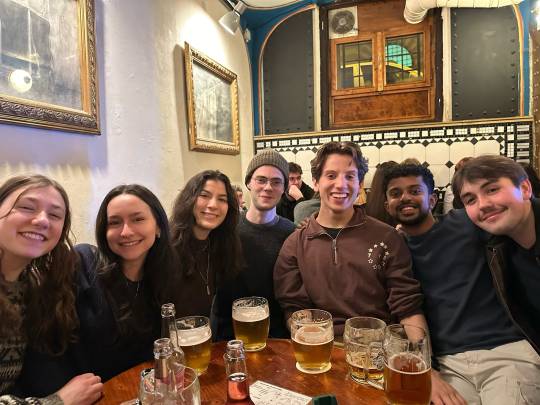





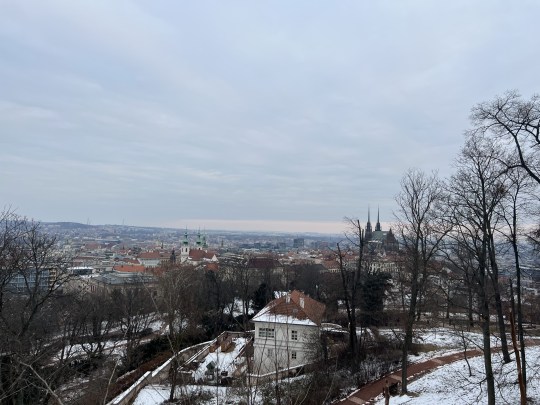
The First of Many Michigan Visits
When I opened the door to my apartment after Brno, I was greeted by Izzy, my friend from UM, who was visiting from her study abroad in Amsterdam! She had spent the weekend hanging out with my two other roommates while we were away, and it was so nice to see her (even though we had just been together in Berlin).
Since Brno was just an overnight trip, we still had all of Sunday to recharge and see more of Prague. We took a quick five minute walk from my apartment to the National Museum (Národní muzeum), where we explored exhibits on evolution, different species, minerals, and Czech culture. Shockingly, this was my first museum visit in Prague and I’m so glad I finally made time for it. The exhibits were incredible and the museum was definitely worth it, I’m already planning visits to others in the city!
That’s a wrap for this week! Between weekday classes and weekend adventures, it was another eventful one. Next week, I’m looking forward to hosting more visitors from Michigan for their spring break (including my twin sister from Carnegie Mellon!). It’s going to be busy, but I couldn’t be more excited :)
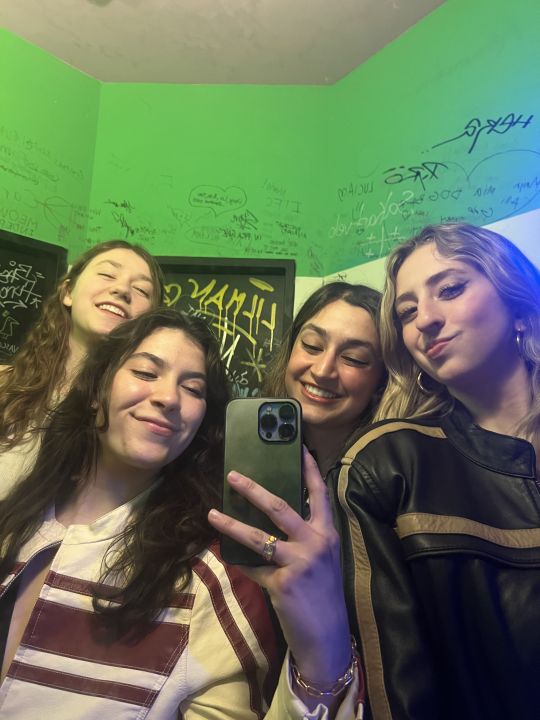

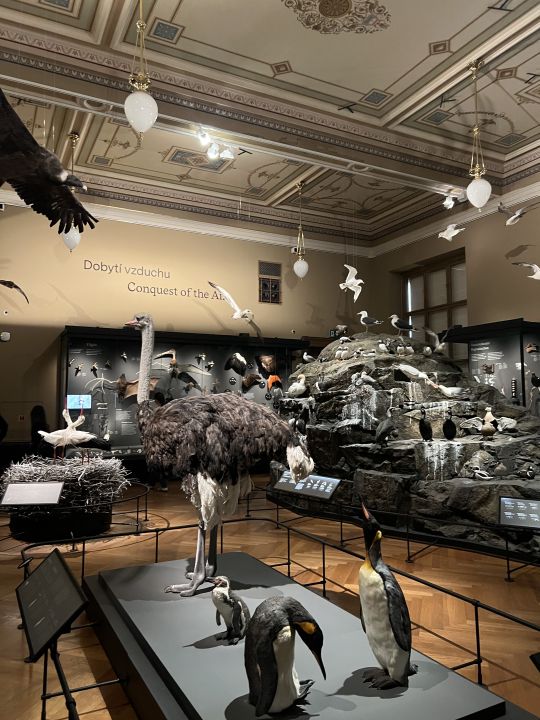
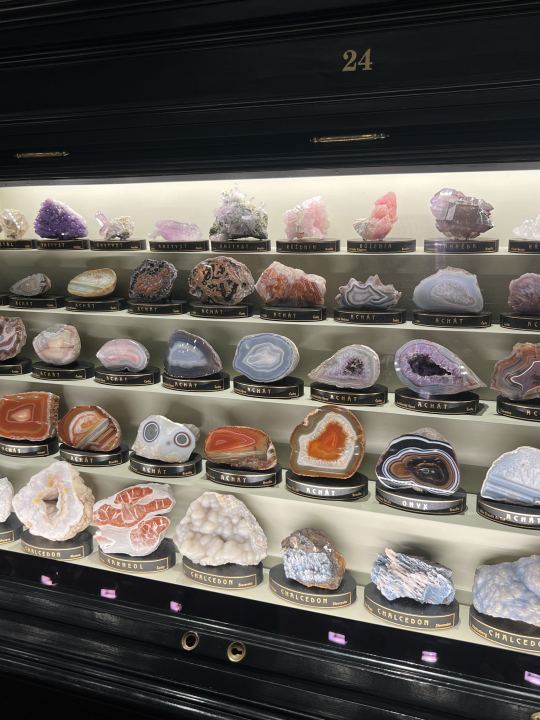
Until next time,
Natalie
1 note
·
View note
Text
2023/07/19 English
BGM: The Jesus and Mary Chain - I Love Rock 'N' Roll
Today I worked late. This morning I went to the library and borrowed a collection of romantic sonnets in England. After that, I started writing today's poem at the AEON's food court. Recently I am busy so can't stay and enjoy chatting on Discord to chill. I am sorry for my absence. Next Saturday I will be able to get a day off, and I want to enjoy small talk even though I have to make up the record of the meeting about autism on last Sunday. I wrote a draft of my poem so roughly. Although I want to open it to the world (for example, on Facebook). But I won't. I want to be modest to open it because I don't want to treat my readers so rudely. I need the time to make my head cool. I start reading a long interview with Shuntaro Tanikawa, and find that I have never known about him almost completely. We can find his works almost everywhere. On the textbooks, advertisements, the cartoon "PEANUTS" he had translated... But I have not learned how he had lived. This is a good opportunity for me. What can I learn?
And evening time, at the resting time of my work, I write my poem completely once more. On a Telegram group, I asked the admin to introduce my poetry blog. Oh my gosh, my life goes around the poetry nowadays. This maniac personality is one of the characters of autism. As I wrote yesterday, I have a friend as a YouTuber. Although I can't have followed his videos, I start thinking that I could add my poems to the melody he writes. Yes, a collaboration. Or another friend's paintings and my poetry... my dreams increase. It makes me happy, and also lets me feel grateful in the current situation. Now I just need to enrich my collection of poetry to wait the time because it is too early. I need the time to realize these collaborations. I share some pics of "本の蔵". I start thinking that I would like to afford the first collection of my poetry to them to share with the customers if I could make it. Can I use the friend's painting as its cover? And I also want to share the income from the book by selling it with her. Of course, this is just a plan. I need to collect my poems.
Is there any writer who had become famous in his/her late stage of life? I adored the writes who had appeared young enough and become famous immediately. Just like Keiichiro Hirano (although I have never read his works), and Ryu Murakami. But I can't become like them. I need to accept that I am lesser than them, and I never have the great talent... I just try to make my talent grow higher steadily, step by step. Then I could become a great old writer as Atsushi Mori and Charles Bukowski. Of course, maybe I couldn't become because there must be a lot of amateur writers who couldn't show their talents. There must be the writers who had been praised after their death like Franz Kafka. I can't control that I would be praised, or become popular. I just make my efforts to keep on writing my best, and try to show it to the world. They are the things I can control. I just do them and wait for the result. God will help me.
I had drunk a lot of alcohol in my young days, and now have a regret a little. I needed to care myself more preciously. But at that period I couldn't see that, and there was no person who said to me "Treat yourself precious". Now I just try to keep/save my inner fire of vitality, and walk forward one by one. I try to write my poems one by one, slowly, slowly... I think that this is really a miracle because I am still alive. Now, luckily, my fire still works. Keep this fire and try to live in my 50s and 60s... to leave the great works as Yoshikichi Furui and Haruki Murakami. Once I felt that I must be sinful because I couldn't have found any purpose or dream in my life. Why had I learned English literature at Waseda? But now, I feel that everything was to be here. I just gripped my interest, and tried to dig it to the other side of this planet even though I have no talent. A long and winding road... to be here. Now the scenery is wide. What kind of inspiration falls from the sky?
The Hearts are Still Blue
The high school was like a battle place Smart students were trying to be an ace How would they become? Any famous magazine's face? Outsiders like me actually needed a grace
The Blue Hearts sang their anthem "TRAIN-TRAIN" They declared to go their way through very heavy rain I adored them. I carried my Walkman like the drink "REGAIN" I enjoyed their songs a lot although they must never refrain
And now... time must fly. But on YouTube I try I revisit the battle field with "The Catcher in The Rye" I don't want to tell any lie, but you say I'm sly?
The Blue Hearts says simplicity is the key So don't be afraid. Be yourself cause you're free I write this one with a smile of toy monkey
*1 The Blue Hearts is a Japanese punk band
0 notes
Text
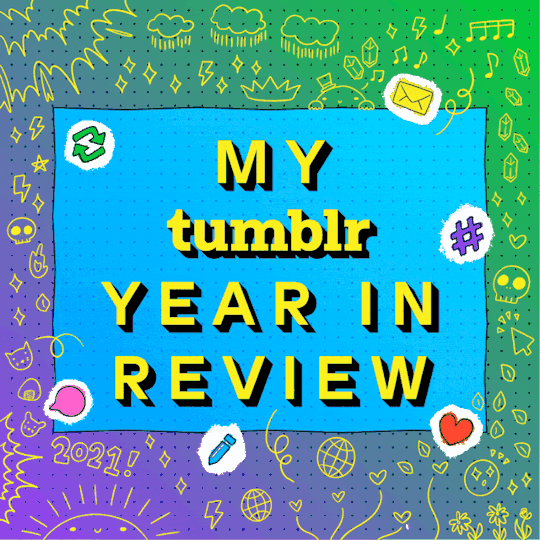
I posted 256 times in 2021
182 posts created (71%)
74 posts reblogged (29%)
For every post I created, I reblogged 0.4 posts.
I added 1,031 tags in 2021
#rqg - 229 posts
#rusty quill gaming - 217 posts
#incorrect quotes - 175 posts
#rqg wilde - 90 posts
#rqg zolf - 77 posts
#rqg hamid - 57 posts
#rqg sasha - 53 posts
#not a quote - 49 posts
#zoscar - 44 posts
#rqg azu - 40 posts
Longest Tag: 100 characters
#i just think they deserve to be a chaos polycule living together on a houseboat and causing mischief
My Top Posts in 2021
#5
Zolf: Okay, truth or dare?
Wilde: Truth
Zolf: How many hours have you slept this week?
Wilde:
Wilde: ...Dare
Zolf: Go to bed.
Wilde: I don't like this game.
206 notes • Posted 2021-05-23 21:38:54 GMT
#4
Rusty Quill Gaming! In which:
Oscar Wilde gets punched in the dick by a goblin
Oscar Wilde dies twice (don't worry he gets better)
Oscar Wilde starts a QPR with a sad dwarf
His personality pretty much checks out though
Marie Curie is a lesbian girlboss
Nikola Tesla is like... A sad dilf
Albert Einstein is your weird drugged up great-uncle who you only see every two years but is extremely iconic
Thomas Edison... Is basically the same as he was irl. That is to say he sucks.
Franz Kafka is a funky evil necromancer
The guy who uncovered Tutankhamun's tomb has ADHD and is also a slightly incompetent gay burglar
There's this semi-famous Japanese philosopher but he's an evil brain in an orb.
Amelia Earhart is a gun-wielding steampunk gnome with an alcohol problem
Ada Lovelace is pretty normal and competent actually. Good for her.
222 notes • Posted 2021-12-06 21:30:38 GMT
#3
Reblog to kiss a jittery goblin paladin on his little gray forehead
226 notes • Posted 2021-08-24 03:54:14 GMT
#2

Based, of course, on this iconic post
330 notes • Posted 2021-09-23 02:12:04 GMT
#1
Ah yes, Rusty Quill Gaming. Featuring such highlights as:
3' tall capitalist lizard gets converted to socialism
Gay Donald Trump throws a dog off a roof
Fanboy has a bad breakup, sulks for awhile, then becomes God
Socially inept goth girl tells everyone she's dead inside
Local 10 year old won't shut up about how his girlfriend is a hunter
Diversity win! That girl from your highschool math textbook who bought 100,000 marbles is POC and bisexual!
Trans rights but with explosions
Also featuring!
All your favourite late 19th century celebrities, but now they're gay and sad!
388 notes • Posted 2021-06-03 03:20:44 GMT
Get your Tumblr 2021 Year in Review →
37 notes
·
View notes
Text
“[what I write about actors] is false because I write about them with steadfast love” stepped on my chest with Franz Kafka's entire body weight
for context, entire journal entry below via Franz_K_Diaries on Twitter:
23 October. The actors by their presence always convince me to my horror that most of what Ive written about them until now is false. It is false because I write about them with steadfast love (even now, while I write it down, this too becomes false) but varying ability, and this varying ability does not hit off the real actors loudly and correctly but loses itself dully in this love that will never be satisfied with the ability and therefore thinks it is protecting the actors by preventing this ability from exercising itself. Quarrel between Tschissik and Lowy. Ts.: Edelstatt is the greatest Jewish writer. He is sublime. Rosenfeld is of course also a great writer, but not the foremost. Lowy: Ts. is a socialist and because Edelstatt writes socialist poems, because he is editor of a Jewish socialist newspaper in London, therefore Ts. considers him the greatest. But who is Edelstatt, his party knows him, no one else, but the world knows Rosenfeld. - Ts.: It is not a question of recognition. Everything of Edelstatts is sublime. - L.: Of course, Im well acquainted with him too. The Selbstmorder, for example, is very good. - Ts.: Whats the use of arguing. We wont agree. Ill repeat my opinion until tomorrow and you the same. - L.: I until the day after tomorrow. Goldfaden, married, spendthrift, even if terribly badly off. About a hundred pieces. Stolen liturgical melodies made popular. The whole people sings them. The tailor at his work (is imitated), the maid, etc. With so little room for dressing you are bound, as Ts. says, to get into quarrels. You come off the stage excited, everyone considers himself the greatest actor, then if someone, for example, steps on someone elses foot, which can not be avoided, not only a quarrel but a good battle is ready to break out. But in Warsaw there were seventy-five small, individual dressing-rooms, each one with light. At six oclock I met the actors in their coffee-house seated around two tables, divided into the two hostile groups. A book by Peretz was on the table of the Ts. group. Lowy had just shut it and stood up to leave with me. Until the age of twenty Lowy was a bocher who studied and spent the money of his well-to-do father. There was a society of young people of the same age who met in a locked tavern precisely on Saturday and, dressed in their caftans, smoked and otherwise sinned against the Sabbath commandments. The great Adler from New York, the most famous Yiddish actor, who is a millionaire, for whom Gordin wrote Der Wilde Mensch and whom Lowy in Karlsbad had asked not to come to the performance because he didnt have the courage to act in his presence on their poorly equipped stage. - Real sets, not this miserable stage on which you can not move. How shall we play the wild man! You need a sofa for it. In the Crystal Palace in Leipzig it was magnificent. Windows you could open, the sun shone in, you needed a throne in the play, good, there was a throne, I walked towards it through the crowd and was really a king. It is much easier to act there.
2 notes
·
View notes
Text
And When I am Formulated - Reference List (for those who wanted one)
I know some of you liked the idea of this when I suggested it, so I've collected all the literature references from AWIAF.
I’ve also tried to include some of the reasons why they were used, you know... just in case you were wondering what’s up with the weird chapter titles :)
-------------------------
Chapter 1 + 6: ‘The diving board’
- This is from the short story, Forever Overhead, by David Foster Wallace.
- I recommend reading it, simply because of how strange and alienating it is. However, I don’t recommend it if you’re currently experiencing depression or suicidal thoughts, simply because there’s an undercurrent there.
- It’s mainly about societal systems and feeling constrained by the pointless processes that make up modern society. I figured the MC felt this way long before she got to the Borderlands.
Chapter 1: ‘John Steinbeck’s characters’.
- They always play rummy in Of Mice and Men for some reason.
Chapter 4 + 22: ‘The eyes that fix you in a formulated phrase...’, ‘until human voices wake us’, ‘forcing the moment to its crisis.’
- These are all from The Love Song of J Alfred Prufrock by T.S. Eliot.
- Although I have very, very mixed feelings about Eliot for a number of reasons, this poem pretty much helped summarise the story.
- Chishiya pretty much had her ‘formulated’ from the very beginning, having already fixed her position in his plans. However, the only thing he didn’t have formulated was his own feelings.
- Of course, the actual poem is about a proposal, which is why I couldn’t give you this list before :D
Chapter 4: Utopia by Thomas More.
- I mean, this pretty much explains itself haha.
Chapter 7 : ‘A Single Green Light’
- This is from The Great Gatsby by F. Scott Fitzgerald.
- Just like the green light on Daisy’s dock is a source of comfort to Gatsby, Kuina and Chishiya become a green light to the MC as they find her comfortable clothes and come to her aid in the militant situation, respectively.
Chapter 8: ‘Mad to Live, Mad to Talk’
- The Road by Jack Kerouac.
- This line features in a famous quote that was too long to include as a title: “the only people for me are the mad ones, the ones who are mad to live, mad to talk, mad to be saved, desirous of everything at the same time, the ones who never yawn or say a commonplace thing, but burn, burn, burn like fabulous yellow roman candles exploding like spiders across the stars”.
- I thought this would represent how frenzied the beach is.
- Everyone lives each day to the fullest, but it’s transient as they’re killed off every night.
Chapter 10: ‘A Train Whistle’
- From Concerning the Sound of a Train Whistle in the Night by Haruki Murakami.
- This is such a beautifully written short story. It’s so simple, yet it explains love so well.
- The MC pretty much explained this one, but as I’m sure you all know, she ends up becoming the train whistle he needs to cut through the emptiness.
Chapter 11 + the underlined quote: ‘Without a Soul’, ‘I’m tired of being enclosed here...’
- Wuthering Heights by Emily Bronte.
- Chishiya rejects the idea of being tied to someone, despite his instincts telling him the opposite.
- It’s an argument of rationality vs imagination both on a ‘souls exist/don’t exist’ scale and ‘I love her/I don’t need her’.
- It was so, so tempting to have that mystery underlined quote be something romantic, but instead it felt more real to have it be something that reflects how far the MC has come.
Chapter 11: ‘In books, I could go anywhere I wanted. I could be someone else. I wasn’t alone.’
- This was actually inspired by Matilda, by Roald Dahl.
- Particularly this line: “So Matilda’s strong young mind continued to grow, nurtured by the voices of all those authors who had sent their books out into the world like ships on the sea. These books gave Matilda a hopeful and comforting message: You are not alone”.
- That line has always made me cry.
Chapter 12: The Metamorphosis by Franz Kafka
- It’s widely believed that Gregor Samsa’s father, who abuses him after he has turned into a cockroach.
- I figured it could also reflect the MC’s father, as she’s spends the next day after the argument and Niragi’s attack focused on this book and plagued by it.
- If books are usually her safe space, it has now been contaminated.
Chapter 14: ‘Half-Sick of Shadows’
- The Lady of Shalott by Alfred Tennyson.
- For those who haven’t read this beautiful poem yet, the Lady of Shalott is bound to her tower by a curse that will come into action if she ever looks out of the window. So, she uses a mirror to look out instead, but this only makes her unhappy as she watches others’ reaching happiness while she can only experience it through reflections.
- Like the Lady of Shallot, the MC decides to take her life into her own hands, instead of letting her family hold her back.
Chapter 15: ‘Love and Squalor’
- To Esme, with Love and Squalor, by J.D. Salinger.
- In this whole chapter, the MC and Chishiya alternate between love and distrust. They’re somewhere in-between at this point in their relationship.
Chapter 18 + 19: ‘Do Not Go Gentle’
- As you probably already know, this is Do Not Go Gentle Into That Good Night by Dylan Thomas.
- This was included via a request, but it works perfectly for the Borderlands since everyone’s fighting death every single game, and they’re willing to do whatever it takes to survive.
- It can also refers to their plan, and the idea that Chishiya and Kuina will go to extremes (like setting up Arisu) in order to escape the beach.
Chapter 19: ‘I May Think of You Softly’
- The Crucible by Arthur Miller.
- Although The Crucible has nothing in common with this fic, this quote itself summarises the MC’s feelings the best: “I may think of you softly from time to time. But I will cut off my hand before I’ll ever reach for you again”.
- Even though she can’t stop loving him, she refuses to give in to his influence.
Chapter 20 + 21: ‘Sound and Fury’
- Macbeth by Shakespeare.
- The full quote in Chapter 20 is from the famous “tomorrow and tomorrow” speech.
- Life is simply excessive noise shouted by an idiot, but ultimately is pointless. The ‘idiot’ can be herself, for loving Chishiya; Niragi, for his relentless pursuit at getting back at Chishiya; or even the players themselves for trying so hard to survive.
- Long story short, everything seems pointless since they’ll all probably die anyway.
Chapter 21: ‘Tread Softly’
- From He Wishes for the Cloths of Heaven by Yeats.
- In essence, she’s begging Chishiya to stop wiping his feet all over her dreams, lol.
Chapter 24: ‘And the Rest is Silence’
- This is from Shakespeare’s Hamlet, and are also Hamlet’s last words.
- Of course, it refers to death. It’s the last chapter, after all.
- However, it’s just the death of the first stage, and the next one won’t be so silent :)
39 notes
·
View notes
Note
I have been invoked!
Well, some of the Norwegian titles I don’t know (nor have I wandered down the path of Christie though she seems to be a delight). Here’s what I can add off the top of my head.
Authors
Vladimir Nabokov: Famous for Lolita but he’s written many other works equally as nauseating, haunting, and good. For a different flavor of despair I recommend “Invitation to a Beheading” which is pretty much Nabokov’s answer to “The Castle”
Stephen King: Not all his books are winners and there are some film adaptations I’d say surpass his books (King notably hated Kubrick’s The Shining, while I think it’s utterly fantastic, very different adaptation though that really isn’t the same as the book) but the man’s famous for a reason. I highly recommend the first four books of “The Dark Tower” series (for the love of god, stop after that) and everyone should give “Carrie”.
Frank Herbert: Famous for the Dune Series, like Vinelle I highly recommend not only Dune but also Dune Messiah and Children of Dune. If you choose to continue the series from there just prepare yourself. Otherwise I also recommend the Destination: Void series, in which a giant space ship develops a god complex.
Franz Kafka: The man’s famous for a reason, everything he touches is poetic, unnerving, gold that I highly recommend. Top of the list of course is “The Castle” though all of his short stories are wonderful.
Patricia A. McKillip: One of my favorite straight up fantasy authors. She has such a way of weaving both fantastical worlds and memorible characters. I particularly recommend “The Riddlemaster” trilogy.
Meredith Ann Pierce: What McKillip does for fantasy, Pierce does to blend sci-fi and fantasy seemlessly together in a poetic manner. I highly recommend her “Dark Angel” trilogy as well as “The Woman Who Loved Reindeer”
Ursula K. LeGuin: I particularly love her science fiction works, “The Left Hand of Darkness” is phenomenal as is “The Lathe of Heaven” though nearly all her works are in some way enjoyable.
Margret Atwood: I enjoyed Oryx and Crake but am also fond of The Handmaid’s Tale
Ray Bradbury read his short stories, Fahrenheit 451, pretty much anything he writes is wonderful
Books and Series
The Bartimaeus Trilogy by Jonathon Stroud: Of the many YA series out there this is one of the few I still unabashedly enjoy. Far more than I ever did Harry Potter.
The Neverending Story by Michael Ende: A beautiful story about learning to love yourself, the world of creation, and the human imagination.
Labyrinths by Jorge Luis Borges: Surreal, haunting, philosophical short stories by Borges.
The Little Prince by Antoine de Saint-Exupers
The Princess Bride by William Goldman not as good as the movie to me, that film is a masterpiece, but highly enjoyable with extra commentary on the genre and publishing business as a whole
The Earth Abides by George R. Stewart a look at a world in which a disease ravages mankind how mankind adapts, recovers, and changes because of this (note, it was written and set in the 1960′s so... keep that in mind).
The Giver by Lois Lowry note that I am not recommending the sequels, which while not bad, were not The Giver either.
The Book Thief by Markus Zusak
Alice in Wonderland and Through the Looking Glass by Lewis Carroll
Brave New World and Point Counterpoint by Aldous Huxley the first is a look at a dystopic future in which genetic engineering has occurred the second is about trash people living trash lives
1984 and Animal Farm by George Orwell they’re famous for a reason
The Christmas Mystery and The Solitaire Mystery by Jostein Gaarder this one @therealvinelle told me to recommend when she learned I was adding to her post. I have not read them but I trust her
I love your takes on twilight, do you have recommendations for other books?
Sure!
I'll divide this into authors, titles, and playwrights, since there are some authors I blanket recommend, and reading a play is very different from reading a book.
Also, wrote this one on the fly so there are probably many I missed, but now you have recs.
Authors:
Agatha Christie Christie is remembered by most for her ability to create compelling mysteries and zany detectives, but she had many other qualities. Chiefly among them, her ability to create amazing characters. Recommended works: And Then There Were None. Ten seemingly random people are gathered on an island, and start dying one by one. Crooked House. The usual Christie dysfunctional family, one of my favorites. One of Christie's as well. Curtain. Poirot finds the perfect murderer. Ordeal by Innocence. Two years earlier, a murder was committed. The victim's son was convicted of the crime, and hanged in spite of his insistence that he has an alibi, guys!! Totes!! Well, cut to present day, and the alibi hears about this case, realizes "whoopsie doo, that was me, wasn't it. Well I better tell the family they sent their brother to the gallows and the culprit is still alive and most likely one of them. I love doing good deeds like that. :)" The Mirror Crack'd. One of Christie's later novels, this one is among my favorites for its character creation. It has a very good sideplot of old lady detective Miss Marple finally getting the kind of old where she's not just a zany old lady, but old as in can't live alone and people tell her all the things she can't do, and she's furious about it.
Amalie Skram Radical feminist 19th century realist author. Particular titles I recommend include: Forraadt (Autobiographical novel about a young woman completely unprepared for the horrors of marriage. Places a magnifying glass on the hardships upper-class woman had to endure in their marriage) Professor Hieronimus (A woman reluctantly agrees to submit herself to an asylum, as she has been very stressed lately. The psychiatrist proceeds to gaslight her into thinking she's crazy, her husband believes the psychiatrist over her, she realizes she's not getting out anytime soon. Also autobiographical, because Skram's life was terrible.) Hellemyrsfolket (Follows an impoverished family in Bergen. Asks the question of whether poor life choices are the fault of society or the individual. For instance, first novel, the patriarch has stayed sober and hard-working against all odds, he'll keep this family afloat or so help him god. The novel proceeds to break his spirit.) Skram's translated works might be hard to get your hands on because to my knowledge she's not well known outside of Norway.
Philip K. Dick Hard sci-fi author. Insanely talented man, the kind of mind I aspire to have. A Scanner Darkly (an undercover policeman develops a drug problem and an identity crisis) Do Androids Dream of Electric Sheep? (Features the age-old question of where real ends and synthetic begins)
Victor Hugo VERY loquatious. However, he's so charming when he babbles on and on that you kind of just have to love him for it. I can recommend: Quatre-vingt-treize (historical novel, set during the French revolution.) Les misérables (about miserable French people.)
Titles:
Albertine by Christian Krohg This realist novel about a young, honest woman whose downwards spiral leads her to prostitution sparked a debate about the treatment of prostitutes in Norway and led to changed legislation in their favor.
American Psycho by Bret Easton Ellis Not for the faint of heart, but if you think you can do it then knock yourself out with this insane book.
Candide by Voltaire A satirical anti-war, anti-everything novel about a very candid man named Candide, who travels the world and finds that it's a ridiculously, over-the-top awful place. He remains optimistic through it all.
Coraline by Neil Gaiman Delightfully eerie story about a girl who discovers a sinister world almost identical to our own.
Dune by Frank Herbert Excellent, and while I haven't seen the Villeneuve film yet every interview I've read has given me the strong suspicion that the spirit of the book was lost on him. Read the book.
Good Omens by Terry Pratchett and Neil Gaiman Not a perfect novel, but god it's utterly enjoyable. Impossible not to have a good time reading this.
His Dark Materials by Philip Pullman One of the few YA fantasy series I've read that I wholly and unabashedly loved. Inspired by Milton's Paradise Lost, featuring very interesting religious themes.
Hitch Hiker's Guide to the Galaxy by Douglas Adams SO MUCH FUN. No point in summarizing in part because I can't, this is just a fun, fun, quintology in three parts. If you like my sense of humor you'll love Hitch Hiker's Guide. It's a longer read, though.
Jerusalem by Selma Lagerlöf Penned by the first ever woman who won a Nobel prize in literature, this generational novel depicts the inhabitants of a Swedish village who form a Christian cult and decide to emigrate to Jerusalem. Inspired by a real events. Features seriously interesting characters, my favorite being the couple where the wife developed really bad post-parture depression and wound up committing infanticide, then when she gets out of prison the husband is waiting for her. "I still love you, babe. Let's have new kids."
Lolita by Vladimir Nabokov Beautiful prose, excellent use of an unreliable narrator, horrifying story. Strong recommend.
The Picture of Dorian Gray by Oscar Wilde Most people have heard of this one already, so I'll just say that it's a deeply funny book. Dorian Gray is awful, just awful, but delightfully so. Shoutout to poor Sybil Vane.
To Kill a Mockingbird by Harper Lee Told from the point of view of a little girl, her sweet childhood takes a dark turn when a white woman is raped and a black man gets the blame.
Playwrights:
Euripides. He's the mastermind behind Medea and Bacchae, both of which I strongly recommend.
Henrik Ibsen. A master of writing about the ugliness just beneath the surface. Enemy of the People (Spielberg's movie Jaws is loosely based on it!), Vildanden, and Peer Gynt.
Ludvig Holberg. Erasmus Montanus: Rasmus Berg (Berg meaning "Hill" in Norwegian. VERY normal name.) returns from university, and he is Learned™ now so you may now refer to him only as Erasmus Montanus. He proceeds to be too intellectual to function throughout the play.
Shakespeare. Yeah yeah I feel like a tool, but... he's good damnit. Though my recommendation for him would be to watch a filmatization, as the language can be rather dense. In my experience it's better to know what happens in the play from watching it performed first, before you can really get much out of reading it. The Hollow Crown is a good filmatization of his king trilogies, The Merchant of Venice with Jeremy Irons is amazing, and Baz Luhrman's Romeo and Juliet remains the best Romeo and Juliet film I've seen. Also, sidenote - if English isn't your first language, DON'T make the same mistake I did of reading a translation, thinking that'll be easier.
Sophocles. Wrote the Oedipus Rex trilogy.
Other recs that come to mind are the Old Testament (there's nothing so fascinating as reading stories that date back three thousand years that have shaped our history) and The Cheese and the Worms by Carlo Ginzburg (a scholarly work outlining how an Italian miller named Menochhio formed his own cosmology).
Tagging @theoriginalcarnivorousmuffin in case she wants to add to this.
175 notes
·
View notes
Text
Diving into the Deep Blue
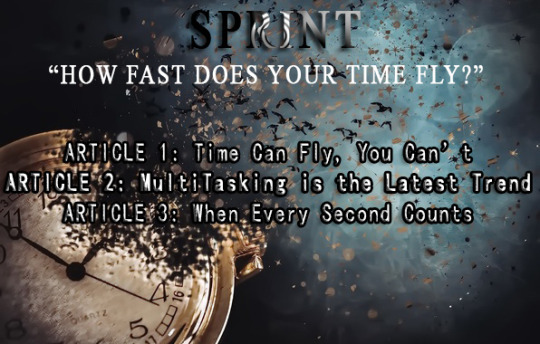

Multi-tasking is believed by some to be also called Multi-switching, call it any term you want, at the end of the day, we are still exerting the best of efforts, at the same time, chasing the same deadline.”
- Adrian Jr. A. Maronilla
It’s been exactly 2 months and 21 days since I had published the first article of my three part Article series entitled, “SPRINT: How Fast does your Time Fly?” It may be mystery to some why I decided to write the sequel, very late when it should had been exactly the next Sunday after the first. Well, my defense would be simple and never complicated to understand, my second write up is completely dedicated to “Multitasking”, and I believe that it would be very poor if I would set a time limit of a week to reason all the important points I want to express in the text. I considered that if I wanted to write an elaborate piece about my chosen topic, it would be excellent if I would not only base my reflections on the selections I encounter online and relate the personal accounts of achievers, but also to include my personal experiences, regarding the struggles in time management, chasing deadlines and of course pushing myself, regularly, to the limits.
To softly start, I am thankful enough to say that I was able to experience at first hand, on very many occasions, how tedious it is to multitask. For the last months, my schedule had demanded me of many requirements, mainly of thesis documents, long home works which frustratingly consumes 2-3 hours of my usual sleep and honestly, dreadfully fun to work and learn, lectures, presentations and graphical computations. But wait, take note, these are my night activities. In the early hours of day and late afternoon, I ready myself, physically and mentally so I could attend my classes as early as I could in the morning and later on. The fun does not stop there, upon entering the penitentiary, just kidding, my fun zone classroom, here comes the real deal. The professor walks in wearing a satisfying smile on some days, and the unlucky look on certain occasions and gives a very interesting 2 to 3 hour sermon about theories with corresponding calculations. So, what’s the big deal? All college students encounter that, or most regular attending students, perhaps. Well, besides from the fact that your physical body is literally glued to the armchair, you also have to resist the temptation of your soul entirely falling to sleep, that for me, is a strong example of multitasking. Another instance is that aside from allowing your full concentration to absorb every drop of information on the lesson/s being taught through listening, I have to force myself to recognize the miniscule, abstract cursive writing etched on the board, so that I could list something on my notes, failure to write, clearly means no reviewer to study.
We are living in a new era, where the motto: Take one step at a time.” is overridden by the anew saying, “Take more than two leaps at a time, because time won’t wait for us.” Multitasking takes in many shapes, forms and is imperatively unconsciously performed during the mostly unexpected of situations. Whether we plan it or not, at the very early hours of the morning, we attempt daily to accomplish as many simple but underrated tasks, such as, drinking refreshments and reading the morning’s news or reviewing for the next hour’s lesson, walking to the nearest bus stop and memorizing tedious verses on the way, and the famous for the studying group, cramming the last minute information in their harassed and worn-out brains while hastily demanding a whole sheet of paper for the exam to the closest seatmate, not to mention, the strain suffered by the ears upon hearing the deadly countdown of the professor, who secretly aims to fail us all (a really overstated statement really, but possibly very realistic). Tiring it may seem, because it really is, how much more effort could we exert in the evening? Multitasking, doesn’t stop at night, in fact, it starts at sunset. Many hard workers would believe that the gravity of work to be done at home is equal to that of work; the only real difference is the place of activity.
I think that it would be appropriate to regard us, hard workers as “multitaskers”, because it is a proven fact that two hands are never enough for the industrious. It had been revealed that one’s decorum and daily habits strongly affect the doer’s output. Based on the time of the day labourers feel more useful, productive and intelligent, researchers had divided the subjects into two major groups, namely, the Morning People and the Night Owls. The former group are individuals, who prefer to start their day on the early hours of dawn, four to five hours ahead of the majority. Some prominent personalities who are recognized and self proclaimed early birds are Margaret Thatcher, former U.K Prime Minister, Benjamin Franklin, founding father of the United States and Kenneth Chenault, the American Express CEO. Pushing away the fact that the personalities mentioned are leaders of a mass of people, it is fairly noticeable that they also handwrite their own unique schedules, a tool which allows them to make a normal day, a very extraordinary one. The latter, are people who literally see the light day in the latest hours of night, because they believe that their best could be brought out under the calmness of the moon. John Travolta, Former U.S. President Barack Obama, J.R.R. Tolkien, Franz Kafka, Bob Dylan and Past U.K. Prime Minister Winston Churchill are few of the much renowned night workers. If your neighbour’s room, night after night, is flooded with light while the other houses are extinguishing lamps readying to enjoy the night’s rest, then it shall be concluded that he/she could possibly be a night owl. These peculiar, yet unbelievable beings have taught, or still continue to teach us that there are always a hundred different, eccentric reasons why we should not fall asleep at an instant, despite the lateness of the hours.
For someone to be a true “multitasker” (a guru of multi tasking properly), he/she should be aware of one’s circadian rhythm (body’s internal clock) and deeply understand the values of discipline and concentration. It would be indeed foolish if you decide to be a morning person, knowing that you are always the last to wake up, also, you could never be a night owl if you find it revolting to work alone under the moon, while everyone should be in the state of relaxation. In short, you could never force yourself to a schedule that looks perfect, but not comfortable on your part. I have always believed. I have always said to myself that, “Work Time is work time, Play Time is play time.” The explanation behind the failure of many is because they are too overwhelmed with either the amount of work they have to accomplish or the abundant amount of time they hold in their hands, that they end up mixing the relevant with the irrelevant and scrambling the primary goal with the secondary or tertiary goals. To master the techniques of multitasking takes more than just time, but practical experience and multiple failures, because there is no one way to comprehend a person’s way of multitasking, it is personally designed to suit one’s mood and attitude towards the job.
If I could not still persuade you on my views, I would proudly share a short account of a graduate of my course who I believe would perfectly suit what successful multitasking really means, He recently graduated magna cum laude in the university, out of the thousands who graduated in the faculty. This success story may seem a little ordinary, because there had been loads of success stories pointing to the same direction, but trust me; this is few of the most extraordinary. In his own personally written gratitude speech, he had noted that he had commuted from his far away province to the school for four years in a row, non-stop. Take note, it takes him 4-5 hours to travel going to his destination, and a lucky, 5-7 hours going home, because his house is approximately 40.3 miles or 64.86 kilometres away from the Metropolis. When asked, how he managed to study for the written exams and do homework, when his whole morning and afternoon was devoted to the classroom, and his night hours were allotted on the bus .In response, he said that he fulfils his requirements and reviews for the next day’s lessons in the public transport vehicle, and constantly recaps the day’s lessons while walking to the terminal. He also emphasized that his daily hustle on his travels had taught him much about the significance of time management and sorting what should be accomplished first. He gladly concluded that he would never achieve what he has at present if not for the sweat he had shed and the experiences he had undergone. See, working hard equally on multiple facilities is never impossible, as long as you know how to set your priorities right.
4 notes
·
View notes
Text
The Jewish Quarter (Josefov) and Old Jewish Cemetry
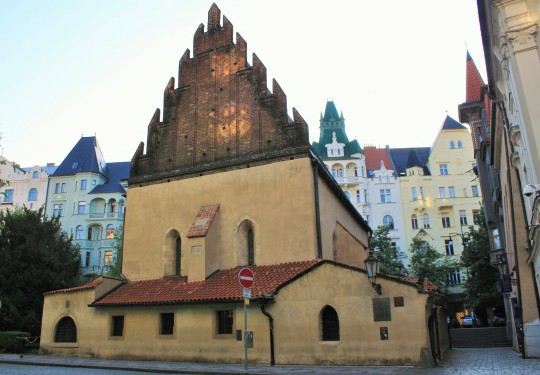
The Jewish Quarter (Josefov) is the Jewish Ghetto neighbourhood of Prague where is located between Old Town Square and Vltava River. Unfortunately, for a very long time, Jews only allowed to live a specific part of Prague. Around the 13th century, Jewish ordered to vacate their houses and settle in the area of Prague, Josefov; The Jewish Quarter. Over the years, Jews could only live within the Jewish Quarter. In addition to this, many expelled Jews from Germany, Austria, Spain and Moravia joined them.
History of The Jewish Quarter (Josefov)
Actually, the history of Jews is quite sad in Prague. The name of this quarter mentioned with Jews first time in 1096. In that year, settlements of the Jews were destroyed during a pogrom. A little more than one hundred years later, the Fourth Council of the Lateran ordered the segregation of Jews and Christian population of the city. After this, Jews of Prague started to live in "Quarter or Ghetto". Sadly, there was another pogrom in 1389 and most of the people who were living in the ghetto were killed. In addition to this pogrom, there were two more in the 15th and 16th century. Until the Holy Roman Emperor Joseph II, the situation continues more or less the same. But he emancipated Jewish population and given them equal citizen right with anyone else.
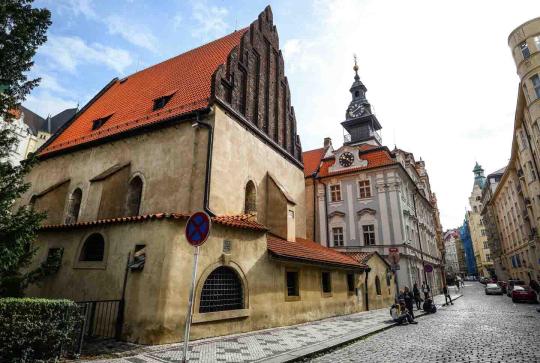
One of the streets of The Jewish Quarter (Josefov) (Source). During World War II, Jews ere forced to wear a yellow star of David on their clothes, taken to the concentration camps and brutally killed as a result of the Holocaust. Because of the Holocaust The Jewish Quarter (Josefov) were almost deserted and houses of Jews were used as a storage space. After the war, The Jewish Quarter (Josefov) became one of the biggest open-air museum and the 2nd biggest Jewish museum in the world. Since from the 1950s, the population of The Jewish Quarter (Josefov) and today around 1400 Jews are living in the neighbourhood. The Old Jewish Cemetry is on top places to see in The Jewish Quarter (Josefov) with 6 historical synagogues; Maisel, Spanish, Klausen, High, Old and New.
Where is The Jewish Quarter (Josefov)?
As I mentioned above, The Jewish Quarter (Josefov) is located between Old Town Square and the Vltava River. Old Town of Prague or Stare Mesto is the home of The Jewish Quarter and other important places to like the most of the things in Prague. Because of its location, you can just take walk to The Jewish Quarter from both National Museum and Wenceslas Square or Prague Castle, Charles bridge and Clementinum. Both routes will be a historical journey for you and give a change experience the past of this magnificent city. For the public transport options, you can use buses, trams or metro to go to The Jewish Quarter. You can find the public transport options below; Metro line A: Staroměstská metro station is very close to the Maisel Synagogue Tramlines 17 and 93: Právnická fakulta tram station is very close to the Old-New Synagoga Bus line 194: Pařížská bus station is almost just next to the Old-New Synagoga
Places to Visit in The Jewish Quarter (Josefov)
Just only in The Jewish Quarter, there are tons of places should be visited. I just summarized the most important and famous one for you. Based on my experience you should share at least a day to fully experience The Jewish Quarter (Josefov). Because each of the places has its own importance for both Czech and Jews. Old Jewish Cemetery One of the most important places in Prague even maybe in Europe is the Old Jewish Cemetery. Old Jewish Cemetery accepted as national cultural heritage in 1995. There are more than 12000 gravestones inside the cemetery. Of course, there are many graves without gravestones. Old Jewish Cemetery was in service between the 15th and 18th centuries. Also, a couple of very important figures of the Jewish people was buried here. David Oppenheim (chief Rabbi of Prague) and Rabbi Loew (creator of The Golem of Prague). Old Jewish Cemetery is very close to the Staroměstská metro station of metro line A or green line. You can also visit Pinkas, Maisel, Klausen and Old-New synagogue located around the Old Jewish Cemetery.
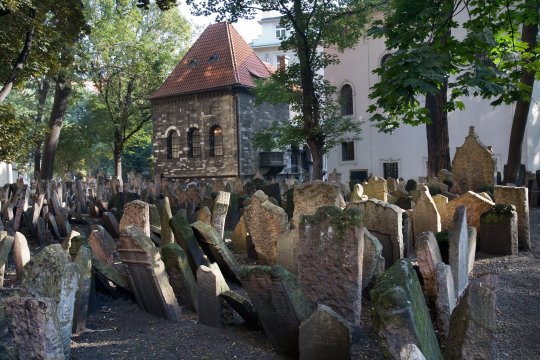
Gravestones in the Old Jewish Cemetery (Source). The Golem of Prague I think it will be nice to tell a couple of words about The Golem of Prague. Based on Jewish folklore there is a golem statue brought to life by a human. Rabbi Loew created the famous golem names as Josille from clay by inserting "shem" (a roll) in its forehead. The duty of the Josille was to protect the Jewish ghetto from the Christians. In time Josille became stronger and Rabbi Loew had to take the shem from its forehead to weaken him. But in one day he forgot to remove the shem from its forehead Josille got very stronger even it can't control itself. Josille started to run on the streets and crush everything. When Rabbi Loew found it one of the streets of The Jewish Quarter (Josefov) he ordered it to stop and get into the Old-New Synagogue. While Josille was sleeping Rabbi Loew removed the magic and Josille started to crumble until disappearing in the dust.
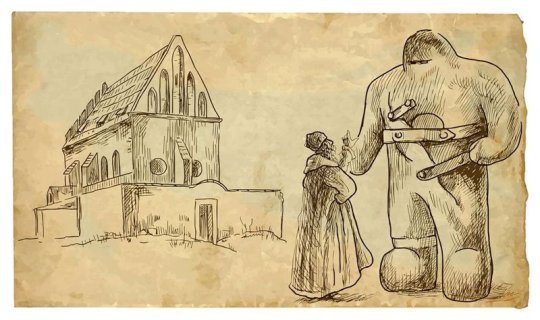
Josille The Golem of Prague and Rabbi Loew in front of the Old-New Synagogue (Source). Six Synagogues of Prague In addition to Old Jewish Cemetry in The Jewish Quarter (Josefov) there are 6 important synagogues to visit. Each of them has impressive history and importance for the Jewish community both in Prague and Europe. Spanish Synagogue The most famous synagogue in the Jewish Quarter (Josefov) is the Spanish Synagogue because of its Moorish interior design and similarity of the exterior to the Alhambra in Spain. Spanish Synagogue was built in 1868 and there is a permanent exhibition you can visit about the life and history of the Jews in Prague. Maisel Synagogue Just after the construction of Maisel Synagogue at the end of the 16th century, it burned during the ghetto fire in 1689. After the fire, Maisel Synagogue rebuilt with Baroque style. Around at the end of the 19th century, it was reconstructed in Neo-Gothic style. Also, Maisel Synagogue holds a very large collection of books, objects and silver belong to the Jewish community of Prague since 1960. Pinkas Synagogue The second oldest temple in Prague is the Pinkas Synagogue. Pinkas Synagogue was built in 1479. After World War II Pinkas Synagogue was turned into a memorial for the Jewish people who lost their lives under the holocaust. 77.297 names of the murdered Jews cover the walls of the Pinkas Synagogue. Also, there is a permanent exhibition about the children who were under captive at the Terezin concentration camp. Klausen Synagogue The biggest of the Six Synagogues in The Jewish Quarter (Josefov), Klausen Synagogue was built in 1694. Klausen Synagogue holds a very large collection of Hebrew texts about the source of Judaism, Hebrew Bible and the Talmud. High Synagogue Mordechai Maise funded the construction expenses of High Synagogue. High Synagogue constructed during the 16th century. It has two floors. On the second floor of the High Synagogue, you can see the collection of fabrics, curtain and relics made by using the silver. There is a little souvenir shop on the first floor of the High Synagogue. Old-New Synagogue Old-New Synagogue is the oldest synagogue in Europe and is also one of the first building with gothic style in Prague. The construction date of the Old-New Synagogue is 1270. If you want to visit Old-New Synagogue you have to buy its ticket separately. I will give information about visiting the Six Synagogue of The Jewish Quarter (Josefov) in a minute.

Interior of Spanish Synagogue is stunning! (Source).
Visiting The Jewish Quarter (Josefov)
If you want to visit the places in The Jewish Quarter (Josefov) in Prague please take a look at the table below. All of the places will be open during the week except Saturday, the holy day of the Jews. Also, on Friday because of the Sabbath synagogue will be closed for an hour. In addition to the Old Jewish Cemetery and Six Synagogue in Jewish Quarter (Josefov) you can also visit the Prague Jewish Museum and Franz Kafka Monument. Prague Jewish Museum is one of the oldest Jewish museums in Europe. The monument of Franz Kafka is a really big one, 3.75 meters tall and 800-kilogram weight. Opening Hour Closing Hour Six Synagogues (November-March) 09.00 17.00 Six Synagogues (April-October) 09.00 18.00 Old Jewish Cemetery (November-March) 09.00 16.30 Old Jewish Cemetery (April-October) 09.00 18.00 Actually you can just buy a ticket from Old Jewish Cemetery or one of the six synagogues in The Jewish Quarter (Josefov) from this website. But I'm strongly suggesting to you take a look to the tour on the widget below. Because if you join a tour, you can learn all the details and history of the this unique district of Prague. For example if you buy the Prague: Walking Jewish Quarter Tour with Museum Entry ticket from this link you will benefit with couple of things. You can explore the Old Jewish Cemetery and visit 3 synagogues in The Jewish Quarter (Josevof) with a guide, see the naive house of Franz Kafka and discover the old streets. Tour tickets also include the admission fee of visiting the Jewish Museum. You can check the widgets for more details. Pay Your Respects Besides of all of these please, just walk through the old street of The Jewish Quarter (Josefov), imagine life and pain of the Jewish people who were lived in here for centuries. Also, you can find very good Kosher restaurent to eat. Don't forget to share your experiences and suggestion for the people who are planning to visit The Jewish Quarter (Josefov), Old Jewish Cemetery and Six Synagogue of Prague. By the way, please feel free to ask your question on the comment section. Read the full article
0 notes
Text
2023/07/02 English
BGM: Rufus Wainwright - Across The Universe
TBH tomorrow, the 3rd of July is my birthday. I will be 48. 48... I am really impressed that I have been surviving my life through a lot of troubles. It is the same as Franz Kafka's birthday, the person who I have adored so much. So once I had thought that "I wanna live like him" and "I wanna be 'modern Japanese Kafka' and also be famous". That Kafka had passed away in his 40. I once strictly had believed that "I also would die in my 40 like him" (of course, I was really young and fool). At that time, I had been a sad heavy drinker. I had never joined the meeting about autism yet too, so I could have been soaked into my own sweet and imagination/daydream/nightmare. But life is strange. At that 40, I started quitting alcohol anymore. And also I could meet the friends who had also been into troubles about/as autism. We built the meeting at last. It means that the age 40 was a turning point of my life. I might be able to say that "I could begin my life from 40". Is it a fate?
Now... I can't remember why I had drunk a lot of alcohol in such a terrible way. My lifestyle/point of view has been changed clearly/drastically. You can describe this as "de-brainwashing". I remember... I had started drinking because I couldn't find any job when I graduate my university (at that time, we didn't have any smartphones as useful equipment yet therefore I couldn't make any task schedules well. I also have to confess that I can't talk with anyone in any real situation positively to appeal how I am cheerful). It had driven me crazy and made me started drinking. That was the beginning. Maybe you already have read this topics many times in this journal... But I was a kid who had been bullied a lot in schools, so my self-image had been distorted heavily/terribly. I had hurt myself a lot virtually/mentally as thinking "Why have I been in this world?" and "I wanna die soon"... I remember this. Serge Gainsbourg, a legendary French artist/performer, said that smoking is a way to do slow suicide. Me, drinking was a way to hell (but I had dreamed that it was an easy/pleasant way to heaven).
And... I thought something was wrong with my drinking style. I tried to stop drinking so googled... and found the "danshu" meeting group this city has. But I couldn't quit alcohol at once. Days passed in vain... and one day the headache arrived me suddenly, so I had to stay in bed. I could stop drinking that day. C'est la vie... The next day I wondered a lot. I should go to buy one more can beer to drink again? "To buy or not to buy, that is a question"... at that time, I (or someone in me) said clearly like this. "It is pitiful", "I am really frustrated". Because if I started drinking again, I would have lived this life soaked into the sea of alcohol. I would die in my 50s... or 60s. Indeed, that can be "a human life". But it must be a "pitiful" life. I remembered Ayumu Kato, a Japanese comedian's phrase... Sorry, I can't find any good English word so I just write it in Japanese. He says "Kuyashii-desu!!". At last, I found a "spirit" in the bottom of my mind/soul... No. Sorry, I have been MAKING/WEAVING a story. Actually, I just had thought that "that's enough", "I don't want let myself drink alcohol anymore". Or simply "I choose living" and "I am frustrated". I found those various ideas coming/flooding from my deep bottom of mind/soul...
After that, I have been quitting alcohol. I have never done any slipping (drinking again). But still now, when I find a sign that says "DRY", I get shocked (in Japan, we have popular brand of beer as "ASAHI SUPER-DRY"). But I don't want to drink anymore. I am now enjoying "the second life" or "a new life" steadily/eventually... "Kuyashii-desu!!". As you (the readers of this journal) already have known this... I am not a "manlike" person (of course, I can't say I am a feminist too. I unconsciously hurt women actually with a certain "manlike" dominance. If you are finding some essences of that, don't hesitate to tell me, please!). Everyday I am writing this... I am just a slacker/wacker with a hentai mind. Just a "sissy" crybaby... But I am also that kind of owner of a tough spirit even though I am like a slug. The spirit that enables me to beat myself, overcome addiction... Like Sting sings, "Let Your Soul Be Your Pilot", I have been surviving. It must be a lucky guy's life. I have been surviving...
1 note
·
View note
Text
Never too old to learn a new language | IFLAC

Three years ago Anuradha came to our institute to learn German. That time she had just retired from her job as a banker at the State Bank of India and was very excited to now be able to dedicate her free time to learning a new language. By now she has completed three levels of German and just joined our faculty of teachers. We asked her to share her experience in learning the language and what her motivation was.
1. Tell us a bit about yourself
I am Anuradha and at present I am a 63 years old retired Banker. After graduating in the commerce stream, I worked for about 40 years in Bank of India, specializing in Foreign Exchange. I have always been very much interested in literature, philosophy and in learning different languages. Due to my love for Rabindranath Tagore’s work, I learned Bengali, to be able to appreciate the beauty of his writing in the original and to sing Rabindra Sangeet with authenticity. My hobbies are music, painting and trekking to exotic places, like Valley of Flowers. I love to travel a lot and I can never resist the call from mountains and oceans. My last favourite expedition was the island hopping cruise in Greece, exploring the archaeological wonders of many of the idyllic Greek islands. My future plans include Norwegian Fiords and Antarctic.
2. What motivated you to learn German?
In the pre-internet days having pen-friends was the most favourite hobby. And I used to have many pen-friends scattered throughout the world. My interest in German was sparked by a very close friend in Stamburg and my early foray into the language was during my college days. The rich cultural heritage of Germany and its profound contributions in the artistic, musical, literary and philosophical fields drew me into its magnetic folds. Learning German allows me access to the works of these great writers in the original language and fully experience the cultural ethos. Germans have also been in the forefront as innovators in scientific research and development and learning German helps me in expanding the horizon of my knowledge.
3. Who are your favourite German authors? And why?
Philosophy and the sciences have had remarkable contribution from German thinkers. The philosophy of Immanuel Kant, Georg Wilhelm Friedrich Hegel, Karl Marx and Friedrich Nietzsche have been path breaking in the field of human thought and have always remained my favourite. The literary works of Johann Wolfgang von Goethe, Thomas Mann, Franz Kafka and Hermann Hesse have always been cherished by me for their depth and profound intensity. The world of classical music is enriched by the exquisite contributions of such well-known German composers like Ludwig van Beethoven, Johann Sebastian Bach, Richard Wagner and Johannes Brams. My favourite also includes the Austrians Wolfgang Amadeus Mozart and Franz Schubert. I also love the paintings of such famous Germans artists like Anselm Kiefer, Gerhard Richter, Matthias Grünewald and Paul Klee (a Swiss German).
4. What advice would you give people of your age who would like to learn a foreign language?
Each new language is like an open window with a new outlook on the world and expands the horizon of our knowledge. As we explore through its enchanting maze, it gently unveils its splendour, treasures and of course its mysteries too. Learning a new language, sets free a spirit in us, that was hitherto bound and lends wings to our soul. And it is never ‘too old’ to learn a foreign language. Research has shown that learning a foreign language in old age avoids cognitive decline, stimulates the brain functions and delays significantly dementia and other mind-related diseases. It allows us above all to experience the ethos of an exotic land even without having to travel there in person.
5. Now that you are teaching German, how are you enjoying the experience?
As ‘German’ is my passion, teaching it to eager, receptive minds is extremely satisfying and every moment is an ever enjoyable experience. This also helps me in furthering my own knowledge as the famous quote of Benjamin Whichcote “There is no better way to learn than to teach.”!
6. Having learnt German do you understand the books better?
Ja, the knowledge of German has enabled me to savour the words of such great writers like Kant and Hesse after understanding them in the original and appreciate their beauty as there is no incidence of anything being “lost in translation”! As quoted by the famous Robert Frost “Poetry is what gets lost in translation”…
#language school#best language school#language school in bangalore#language learning center#Foreign language courses#Corporate training#Exam centres and preparation institute#Translation services#Foreign language centre#Foreign language exam centre#Foreign language training institute
0 notes
Photo
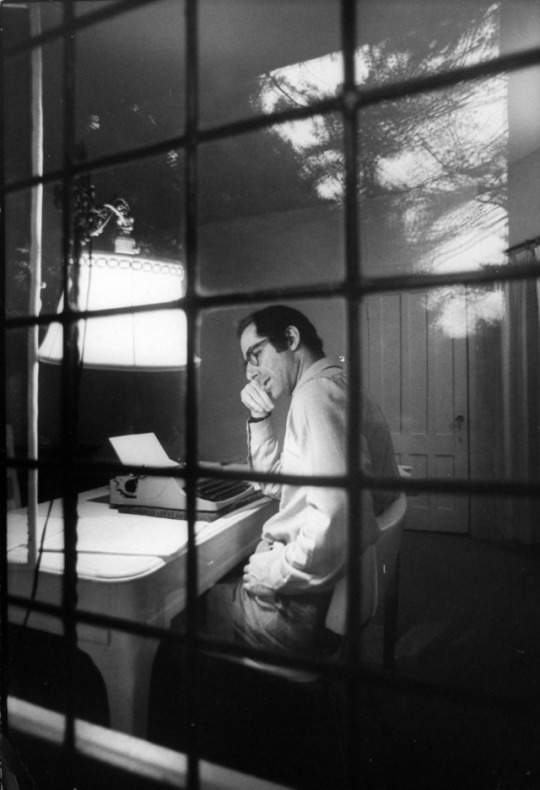
My Life as a Writer
The following is an interview Philip Roth gave to Daniel Sandstrom, the cultural editor at Svenska Dagbladet, for publication in Swedish translation in that newspaper and in its original English in the Book Review.
“Sabbath’s Theater” is now being translated into Swedish, almost 20 years after its original release. How would you describe this book to readers who have not yet read it or heard of it, and how would you describe the main character, the unforgettable Mickey Sabbath?
“Sabbath’s Theater” takes as its epigraph a line of the aged Prospero’s in Act 5 of “The Tempest.” “Every third thought,” says Prospero, “shall be my grave.” I could have called the book “Death and the Art of Dying.” It is a book in which breakdown is rampant, suicide is rampant, hatred is rampant, lust is rampant. Where disobedience is rampant. Where death is rampant.
Mickey Sabbath doesn’t live with his back turned to death the way normal people like us do. No one could have concurred more heartily with the judgment of Franz Kafka than would Sabbath, when Kafka wrote, “The meaning of life is that it stops.”
His book is death-haunted — there is Sabbath’s great grief about the death of others and a great gaiety about his own. There is leaping with delight, there is also leaping with despair. Sabbath learns to mistrust life when his adored older brother is killed in World War II. It is Morty’s death that determines how Sabbath will live. The death of Morty sets the gold standard for grief. Loss governs Sabbath’s world.
Sabbath is anything but the perfect external man. His is, rather, the instinctual turbulence of the man beneath the man. His repellent way of living — he is a kiln of antagonism, unable and unwilling to hide anything and, with his raging, satirizing nature, mocking everything, living beyond the limits of discretion and taste and blaspheming against the decent — this repellent way of living is his uniquely Sabbathian response to a place where nothing keeps its promise and everything is perishable. His repellent way of living, a life of unalterable contention, is the best preparation he knows of for death. In his mischief he finds his truth.
Lastly, this Sabbath is a jokester like Hamlet, who winks at the genre of tragedy by cracking jokes as Sabbath winks at the genre of comedy by planning suicide. There is loss, death, dying, decay, grief — and laughter, ungovernable laughter. Pursued by death, Sabbath is followed everywhere by laughter.
I know that you have reread all of your books recently. What was your verdict? And what was your opinion of “Sabbath’s Theater” while reading it again?
When I decided to stop writing about five years ago I did, as you say, sit down to reread the 31 books I’d published between 1959 and 2010. I wanted to see whether I’d wasted my time. You never can be sure, you know.
My conclusion, after I’d finished, echoes the words spoken by an American boxing hero of mine, Joe Louis. He was world heavyweight champion from the time I was 4 until I was 16. He had been born in the Deep South, an impoverished black kid with no education to speak of, and even during the glory of the undefeated 12 years, when he defended his championship an astonishing 26 times, he stood aloof from language. So when he was asked upon his retirement about his long career, Joe sweetly summed it up in just 10 words. “I did the best I could with what I had.”
In some quarters it is almost a cliché to mention the word “misogyny” in relation to your books. What, do you think, prompted this reaction initially, and what is your response to those who still try to label your work in that way?
Misogyny, a hatred of women, provides my work with neither a structure, a meaning, a motive, a message, a conviction, a perspective, or a guiding principle. This is contrary, say, to how another noxious form of psychopathic abhorrence — and misogyny’s equivalent in the sweeping inclusiveness of its pervasive malice — anti-Semitism, a hatred of Jews, provides all those essentials to “Mein Kampf.” My traducers propound my alleged malefaction as though I have spewed venom on women for half a century. But only a madman would go to the trouble of writing 31 books in order to affirm his hatred.
It is my comic fate to be the writer these traducers have decided I am not. They practice a rather commonplace form of social control: You are not what you think you are. You are what we think you are. You are what we choose for you to be.
Well, welcome to the subjective human race. The imposition of a cause’s idea of reality on the writer’s idea of reality can only mistakenly be called “reading.” And in the case at hand, it is not necessarily a harmless amusement. In some quarters, “misogynist” is now a word used almost as laxly as was “Communist” by the McCarthyite right in the 1950s — and for very like the same purpose.
Yet every writer learns over a lifetime to be tolerant of the stupid inferences that are drawn from literature and the fantasies implausibly imposed upon it. As for the kind of writer I am? I am who I don’t pretend to be.
The men in your books are often misinterpreted. Some reviewers make the, I believe, misleading assumption that your male characters are some kind of heroes or role models; if you look at the male characters in your books, what traits do they share — what is their condition?
As I see it, my focus has never been on masculine power rampant and triumphant but rather on the antithesis: masculine power impaired. I have hardly been singing a paean to male superiority but rather representing manhood stumbling, constricted, humbled, devastated and brought down. I am not a utopian moralist. My intention is to present my fictional men not as they should be but vexed as men are.
The drama issues from the assailability of vital, tenacious men with their share of peculiarities who are neither mired in weakness nor made of stone and who, almost inevitably, are bowed by blurred moral vision, real and imaginary culpability, conflicting allegiances, urgent desires, uncontrollable longings, unworkable love, the culprit passion, the erotic trance, rage, self-division, betrayal, drastic loss, vestiges of innocence, fits of bitterness, lunatic entanglements, consequential misjudgment, understanding overwhelmed, protracted pain, false accusation, unremitting strife, illness, exhaustion, estrangement, derangement, aging, dying and, repeatedly, inescapable harm, the rude touch of the terrible surprise — unshrinking men stunned by the life one is defenseless against, including especially history: the unforeseen that is constantly recurring as the current moment.
It is the social struggle of the current moment on which a number of these men find themselves impaled. It isn’t sufficient, of course, to speak of “rage” or “betrayal” — rage and betrayal have a history, like everything else. The novel maps the ordeal of that history and, if it succeeds, by doing so probes the conscience of the society it depicts.
“The struggle with writing is over” is a recent quote. Could you describe that struggle, and also, tell us something about your life now when you are not writing?
Everybody has a hard job. All real work is hard. My work happened also to be undoable. Morning after morning for 50 years, I faced the next page defenseless and unprepared. Writing for me was a feat of self-preservation. If I did not do it, I would die. So I did it. Obstinacy, not talent, saved my life. It was also my good luck that happiness didn’t matter to me and I had no compassion for myself.
Though why such a task should have fallen to me I have no idea. Maybe writing protected me against even worse menace.
Now? Now I am a bird sprung from a cage instead of (to reverse Kafka’s famous conundrum) a bird in search of a cage. The horror of being caged has lost its thrill. It is now truly a great relief, something close to a sublime experience, to have nothing more to worry about than death.
You belong to an exceptional generation of postwar writers, who defined American literature for almost half a century: Bellow, Styron, Updike, Doctorow, DeLillo. What made this golden age happen and what made it great? Did you feel, in your active years, that these writers were competition or did you feel kinship — or both? And why were there so few female writers with equal success in that same period? Finally: What is your opinion of the state of contemporary American fiction now?
I agree that it’s been a good time for the novel in America, but I can’t say I know what accounts for it. Maybe it is the absence of certain things that somewhat accounts for it. The American novelist’s indifference to, if not contempt for, “critical” theory. Aesthetic freedom unhampered by all the high-and-mighty isms and their humorlessness. (Can you think of an ideology capable of corrective self-satire, let alone one that wouldn’t want to sink its teeth into an imagination on the loose?) Writing that is uncontaminated by political propaganda — or even political responsibility. The absence of any “school” of writing. In a place so vast, no single geographic center from which the writing originates. Anything but a homogeneous population, no basic national unity, no single national character, social calm utterly unknown, even the general obtuseness about literature, the inability of many citizens to read any of it with even minimal comprehension, confers a certain freedom. And surely the fact that writers really don’t mean a goddamn thing to nine-tenths of the population doesn’t hurt. It’s inebriating.
Very little truthfulness anywhere, antagonism everywhere, so much calculated to disgust, the gigantic hypocrisies, no holding fierce passions at bay, the ordinary viciousness you can see just by pressing the remote, explosive weapons in the hands of creeps, the gloomy tabulation of unspeakable violent events, the unceasing despoliation of the biosphere for profit, surveillance overkill that will come back to haunt us, great concentrations of wealth financing the most undemocratic malevolents around, science illiterates still fighting the Scopes trial 89 years on, economic inequities the size of the Ritz, indebtedness on everyone’s tail, families not knowing how bad things can get, money being squeezed out of every last thing — that frenzy — and (by no means new) government hardly by the people through representative democracy but rather by the great financial interests, the old American plutocracy worse than ever.
You have 300 million people on a continent 3,000 miles wide doing the best they can with their inexhaustible troubles. We are witnessing a new and benign admixture of races on a scale unknown since the malignancy of slavery. I could go on and on. It’s hard not to feel close to existence here. This is not some quiet little corner of the world.
Do you feel that there is a preoccupation in Europe with American popular culture? And, if so, that this preoccupation has clouded the reception of serious American literary fiction in Europe?
The power in any society is with those who get to impose the fantasy. It is no longer, as it was for centuries throughout Europe, the church that imposes its fantasy on the populace, nor is it the totalitarian superstate that imposes the fantasy, as it did for 12 years in Nazi Germany and for 69 years in the Soviet Union. Now the fantasy that prevails is the all-consuming, voraciously consumed popular culture, seemingly spawned by, of all things, freedom. The young especially live according to beliefs that are thought up for them by the society’s most unthinking people and by the businesses least impeded by innocent ends.
Ingeniously as their parents and teachers may attempt to protect the young from being drawn, to their detriment, into the moronic amusement park that is now universal, the preponderance of the power is not with them.
I cannot see what any of this has to do with serious American literary fiction, even if, as you suggest, “this preoccupation has [or may have] clouded the reception of serious American fiction in Europe.” You know, in Eastern Europe, the dissident writers used to say that “socialist realism,” the reigning Soviet aesthetic, consisted of praising the Party so that even they understood it. There is no such aesthetic for serious literary writers to conform to in America, certainly not the aesthetic of popular culture.
What has the aesthetic of popular culture to do with formidable postwar writers of such enormous variety as Saul Bellow, Ralph Ellison, William Styron, Don DeLillo, E. L. Doctorow, James Baldwin, Wallace Stegner, Thomas Pynchon, Robert Penn Warren, John Updike, John Cheever, Bernard Malamud, Robert Stone, Evan Connell, Louis Auchincloss, Walker Percy, Cormac McCarthy, Russell Banks, William Kennedy, John Barth, Louis Begley, William Gaddis, Norman Rush, John Edgar Wideman, David Plante, Richard Ford, William Gass, Joseph Heller, Raymond Carver, Edmund White, Oscar Hijuelos, Peter Matthiessen, Paul Theroux, John Irving, Norman Mailer, Reynolds Price, James Salter, Denis Johnson, J. F. Powers, Paul Auster, William Vollmann, Richard Stern, Alison Lurie, Flannery O’Connor, Paula Fox, Marilynne Robinson, Joyce Carol Oates, Joan Didion, Hortense Calisher, Jane Smiley, Anne Tyler, Jamaica Kincaid, Cynthia Ozick, Ann Beattie, Grace Paley, Lorrie Moore, Mary Gordon, Louise Erdrich, Toni Morrison, Eudora Welty (and I have by no means exhausted the list) or with serious younger writers as wonderfully gifted as Michael Chabon, Junot Díaz, Nicole Krauss, Maile Meloy, Jonathan Lethem, Nathan Englander, Claire Messud, Jeffrey Eugenides, Jonathan Franzen, Jonathan Safran Foer (to name but a handful)?
You have been awarded almost every literary prize, except one. And it is no secret that your name is always mentioned when there is talk of the Nobel Prize in Literature — how does it feel to be an eternal candidate? Does it bother you, or do you laugh about it?
I wonder if I had called “Portnoy’s Complaint” “The Orgasm Under Rapacious Capitalism,” if I would thereby have earned the favor of the Swedish Academy.
In Claudia Roth Pierpont’s “Roth Unbound,” there is an interesting chapter on your clandestine work with persecuted writers in Czechoslovakia during the Cold War. If a young author — a Philip Roth born in, say, 1983 — were to engage in the global conflicts of 2014, which ones would he pick?
I don’t know how to answer that. I for one didn’t go to Prague with a mission. I wasn’t looking to “pick” a trouble spot. I was on a vacation and had gone to Prague looking for Kafka.
But the morning after I arrived, I happened to drop by my publishing house to introduce myself. I was led into a conference room to share a glass of slivovitz with the editorial staff. Afterwards one of the editors asked me to lunch. At the restaurant, where her boss happened to be dining too, she told me quietly that all the people in that conference room were “swine,” beginning with the boss — party hacks hired to replace those editors who, four years earlier, had been fired because of their support for the reforms of the Prague Spring. I asked her about my translators, a husband-and-wife team, and that evening I had dinner with them. They too were now prevented from working, for the same reasons, and were living in political disgrace.
When I returned home, I found in New York a small group of Czech intellectuals who had fled Prague when the Russian tanks rolled in to put down the Prague Spring. By the time I returned to Russian-occupied Prague the following spring, I wasn’t vacationing. I was carrying with me a long list of people to see, the most endangered members of an enslaved nation, the proscribed writers for whom sadism, not socialism, was the state religion. The rest developed from that.
Yes, character is destiny, and yet everything is chance.
If you would interview yourself at this point in your life — there must be a question that you haven’t been asked, that would be obvious and important, but has been ignored by the journalists? What would that be?
Perversely enough, when you ask about a question that has been ignored by journalists, I think immediately of the question that any number of them cannot seem to ignore. The question goes something like this: “Do you still think such-and-such? Do you still believe so-and-so?” and then they quote something spoken not by me but by a character in a book of mine. If you won’t mind, may I use the occasion of your final question to say what is probably already clear to the readers of the literary pages of Svenska Dagbladet, if not to the ghosts of the journalists I am summoning up?
Whoever looks for the writer’s thinking in the words and thoughts of his characters is looking in the wrong direction. Seeking out a writer’s “thoughts” violates the richness of the mixture that is the very hallmark of the novel. The thought of the novelist that matters most is the thought that makes him a novelist.
The thought of the novelist lies not in the remarks of his characters or even in their introspection but in the plight he has invented for his characters, in the juxtaposition of those characters and in the lifelike ramifications of the ensemble they make — their density, their substantiality, their lived existence actualized in all its nuanced particulars, is in fact his thought metabolized.
The thought of the writer lies in his choice of an aspect of reality previously unexamined in the way that he conducts an examination. The thought of the writer is embedded everywhere in the course of the novel’s action. The thought of the writer is figured invisibly in the elaborate pattern — in the newly emerging constellation of imagined things — that is the architecture of the book: what Aristotle called simply “the arrangement of the parts,” the “matter of size and order.” The thought of the novel is embodied in the moral focus of the novel. The tool with which the novelist thinks is the scrupulosity of his style. Here, in all this, lies whatever magnitude his thought may have.
The novel, then, is in itself his mental world. A novelist is not a tiny cog in the great wheel of human thought. He is a tiny cog in the great wheel of imaginative literature.
Daily inspiration. Discover more photos at http://justforbooks.tumblr.com
4 notes
·
View notes
Text
♚ Writing Tips: Opening Your Novel ♚
In my experience, the opening paragraph is the most important and arguably the hardest to write. This is doubly so for the first sentence - do I introduce a character, a place, a concept? What should be included, or left out?
Common Rules:
Try to introduce your main character within the first page.
Have a ‘hook’ - something that will catch a reader’s attention and whet their appetite for your novel.
There should be something unanswered or incomplete. The reader needs to want to read onward in order to become invested.
The introduction should set the tone of your novel.
Famous Openings:
“It was a bright cold day in April, and the clocks were striking thirteen.” - Nineteen Eighty-Four by George Orwell.
“Lolita, light of my life, fire of my loins. My sin, my soul. Lo-lee-ta: the tip of the tongue taking a trip of three steps down the palate to tap, at three, on the teeth. Lo. Lee. Ta.” - Lolita by Vladimir Nabokov.
“It is a truth universally acknowledged, that a single man in possession of a good fortune must be in want of a wife.” - Pride & Prejudice by Jane Austen.
“The sky above the port was the color of television, tuned to a dead channel.” - William Gibson, Neuromancer.
“Someone must have slandered Josef K., for one morning, without having done anything truly wrong, he was arrested.” - Franz Kafka, The Trial.
“Mr. and Mrs. Dursley, of number four, Privet Drive, were proud to say that they were perfectly normal, thank you very much. They were the last people you'd expect to be involved in anything strange or mysterious, because they just didn't hold with such nonsense.” - Harry Potter and the Philosopher’s Stone by J.K. Rowling.
“When I wake up, the other side of the bed is cold. My fingers stretch out, seeking Prim’s warmth but finding only the rough canvas cover of the mattress. She must have had bad dreams and climbed in with our mother. Of course, she did. This is the day of the reaping.” - The Hunger Games by Suzanne Collins.
More Here: [X]
What do these introductions do right?
Suzanne Collin’s The Hunger Games [X] establishes much in few words. In the first two paragraphs we know: The main character’s financial situation; the whole family is sleeping in the same room. The mention of ‘rough canvas’ also aids this. It also tells us they live in discomfort. Their family has at least three members. There is no mention of a father, leading the reader to believe there is none. There is cause for Prim to have bad dreams, and it happens frequently - the act of her transferring to their mother’s bed for comfort is a common enough thing for it to be the first explanation the main character decides upon when waking. The main character is given an age without stating it in writing, as she is assumed to be older than her sister, but too much of an age gap is unlikely. The concept of ‘the reaping’ is also introduced to us, and it is a scheduled event widely known of. It causes anxiety in Prim, so it’s likely something negative for the family. We wake up with the main character on the day of the reaping - we’re directly involved in the story, we’re placed in a very personal situation. We know that whatever the event is, it will likely have a huge impact on the story to come.
Like the above example, the other introductions also set the tone of their novel. A discord from reality is established instantly in Nineteen Eighty-Four, a grim scene is set in The Hunger Games from the first words, escalating until we hit the ultimate line ‘This is the day of the reaping’, Harry Potter allows us to recognise the normal, modern world that we live in whilst also introducing the idea of hidden magics and wonders. It is child-friendly whilst also enabling adult readers to enjoy it.
They introduce questions: How are the clocks striking thirteen, what does that even mean? Who is Lolita, why does the writer speak with such obsession? What is the ‘reaping’? Why would we expect the Dursley’s to be involved with anything strange to begin with?
The two that don’t mention a main character quickly go on to within the first paragraph or the one following. This establishes a connection between the reader and the characters instantly. Stories carry more meaning when they’re grounded within something we can relate to - so until you’ve given your readers a character to see the world through, the exposition is baseless.
It is important to know the tone of your novel before you finalise that beginning paragraph. Is there a prevailing theme you return to often through the book? Hint to it in the beginning. Is there a certain style you’re drawn towards? Leave breadcrumbs in that original paragraph.
In General:
Foreshadow. Establish setting, characters, mood. Introduce a ‘hook’. Establish style of prose. Do as much as possible in as few as possible words. Every sentence should be important to forwarding the plot.
... And don’t worry if you think it isn’t perfect! You will go back and rewrite it multiple times before you actually finalise the novel, trust me - both in the editing phase and during those 2AM inspiration rushes once every two weeks. Don’t let your lack of ideas halt the novel entirely - the first draft isn’t expected to be perfect or final! ♛ If you have any questions, feel free to send me an ask. ♛
2 notes
·
View notes
Note
Hi! I am quite new (I literally started following you a few moments ago) on your blog and would like to ask you what you think of German authors or European authors joining the BSD cast (if that ever happens)? I personally want to see Franz Kafka so badly tbh. Also thank you for your blog! :D Danke vielmals!!
Hello lovely anon! Thank you so much for following me and sending that ask (and therefore talking to me, darn, I need social interactions!)Interesting question that I tried to answer a bit in my movie theories:I’d absolutely love to see European authors and yes of course German authors because yeah, as a German I am that patriotic and I want people to learn about our culture.
Soo who do I wanna see badly?
The most famous examples would of course be Goethe and Schiller because they’re kind of German power horses and hopefully the whole world has heard about them. But haha and here I am biased, everyone who had to analyze these guys in school absolutely hates them xD I do at least. And unfortunately, the target group of bsd characters ranges around the years 1900 and later. So I suppose we won’t see them.
Kafka? Hell yes! Unfortunately and to my personal shame I haven’t read his works yet but he’d surely fit. And hey, Kafka Asagiri? As if he’d leave out another Kafka!
Another author I really wanna see is Thomas Mann. Another example of love-hate, I wrote many exams about this guy… but his works are good yes, he’s quite critical with his works and he’d fit in well. Don’t ask me about a possible ability though. Don’t ask me about the Buddenbrooks.
Personally who I really wanna see (but this won’t happen): Sigmund Freud. I’m a psychology major and his works have influenced my field like nothing else. Also he’s batshit crazy. His ability would probably be to turn people into toddlers (or something worse *cough*). Unfortunately he’s not in the bsd character target group, since his works aren’t fiction like all other authors. I still wanna see him badly.
I could keep talking…
Uh that was long. I do hope for German authors but I’m not sure if we’ll have some. Agatha Christie might be rather elitist and patriotic so I’m expecting British or UK authors - she hopefully works with a whole group, it would be a shame to see her work alone like Fyodor!Here I am hoping for Shakespeare and of course Oscar Wilde!!! We already thought out an ability for him and he’d totally flirt with everybody in the show and be a threat for Dazai like this xD. If you wanna hear more about him just send me an ask.
So.. uh yeah. Thank you anon (I think I went a bit overboard). I love to analyze things and discuss it with others! Vielen Dank~~
7 notes
·
View notes